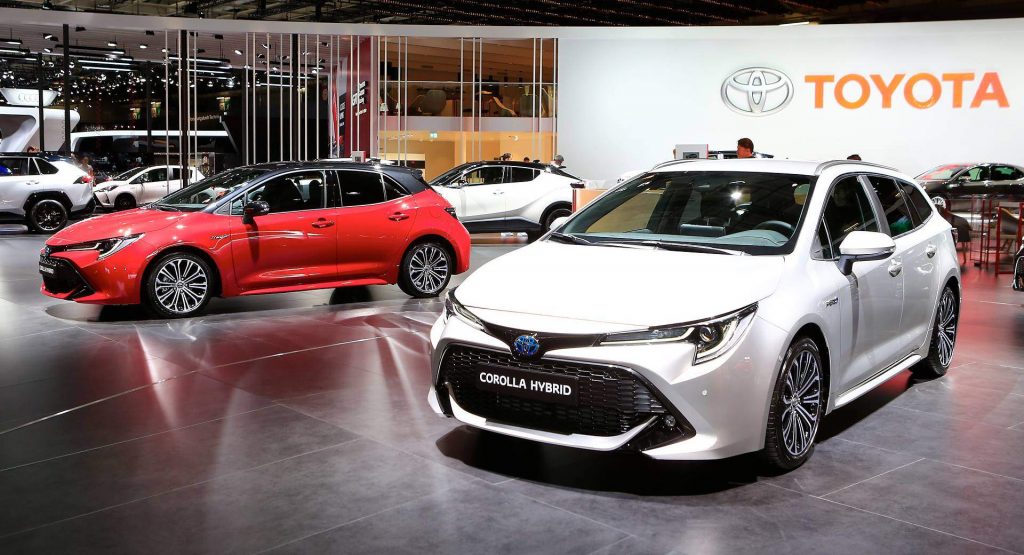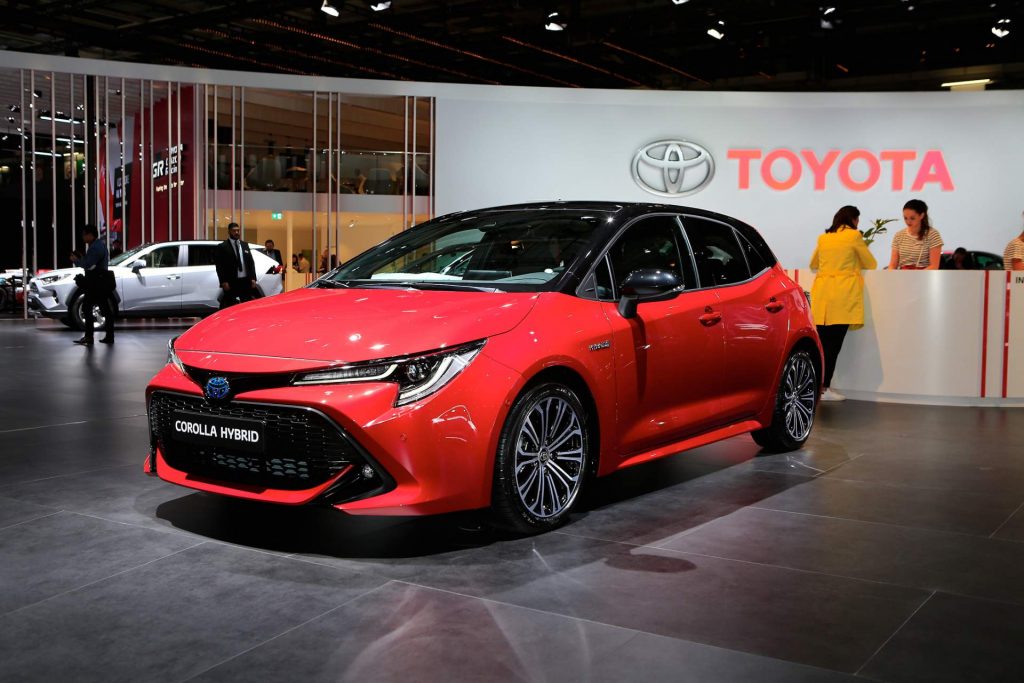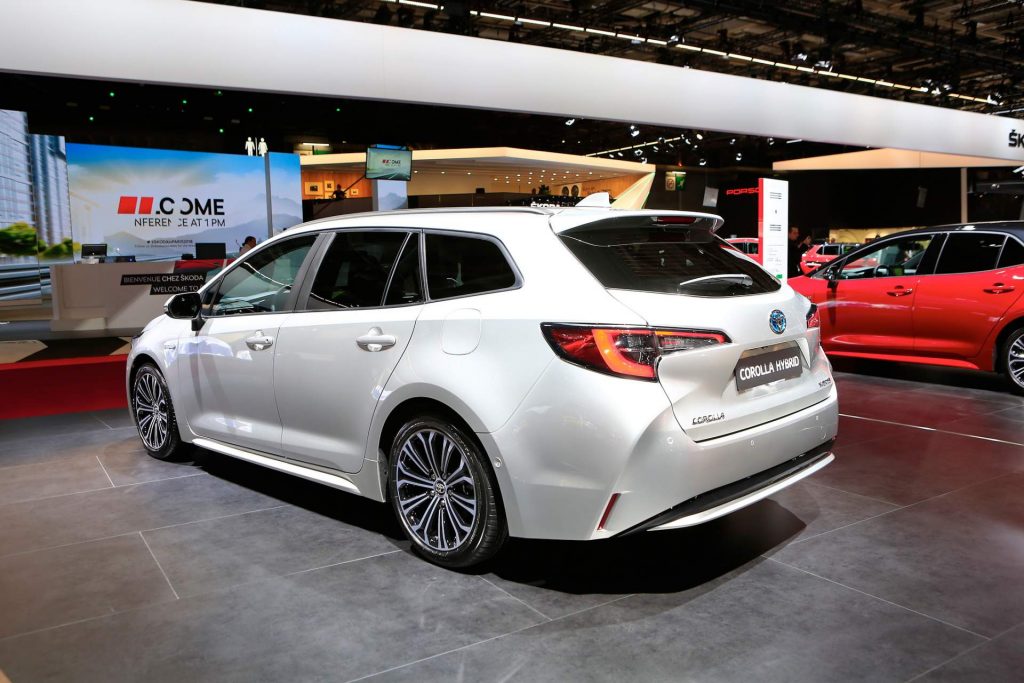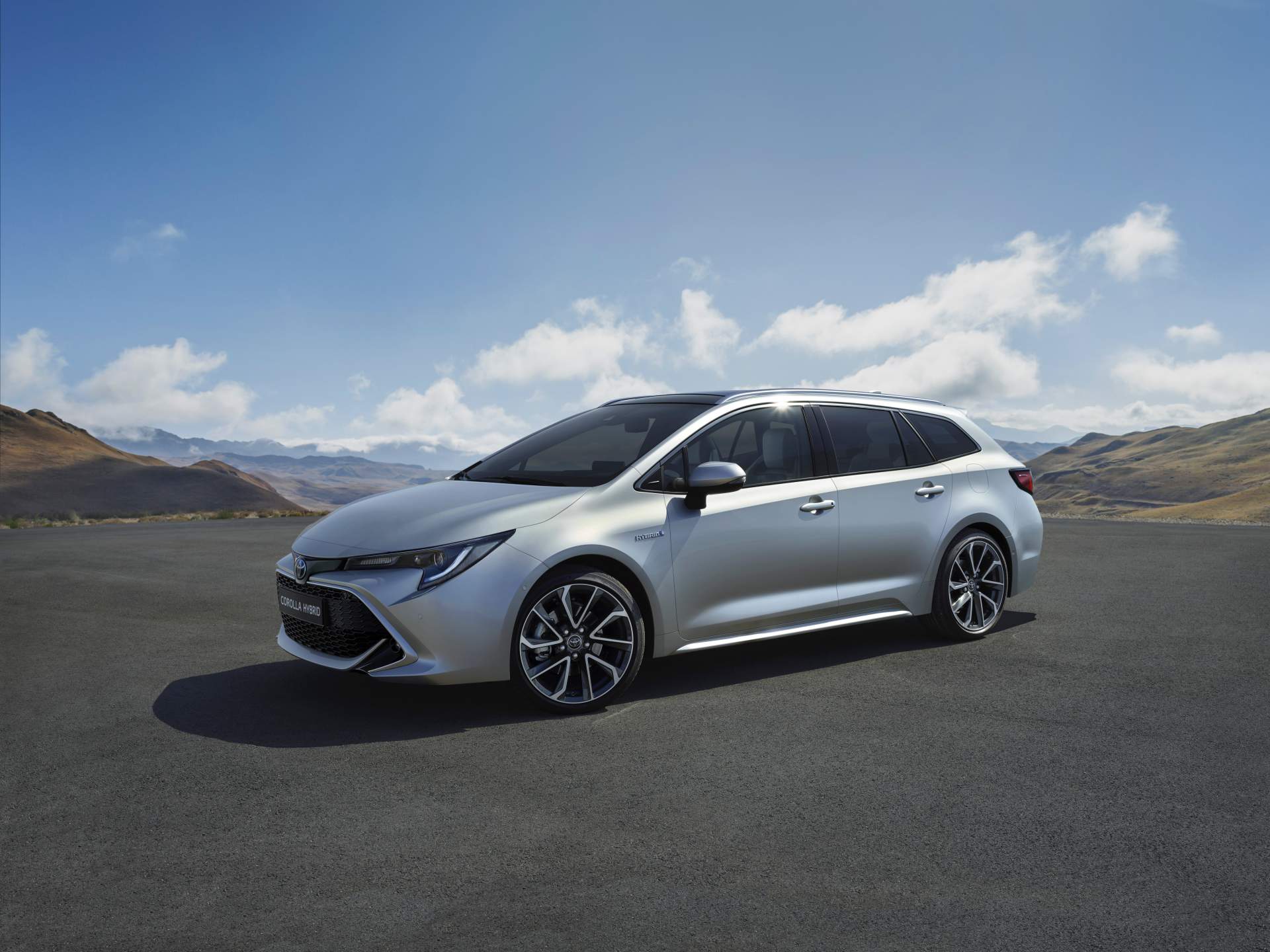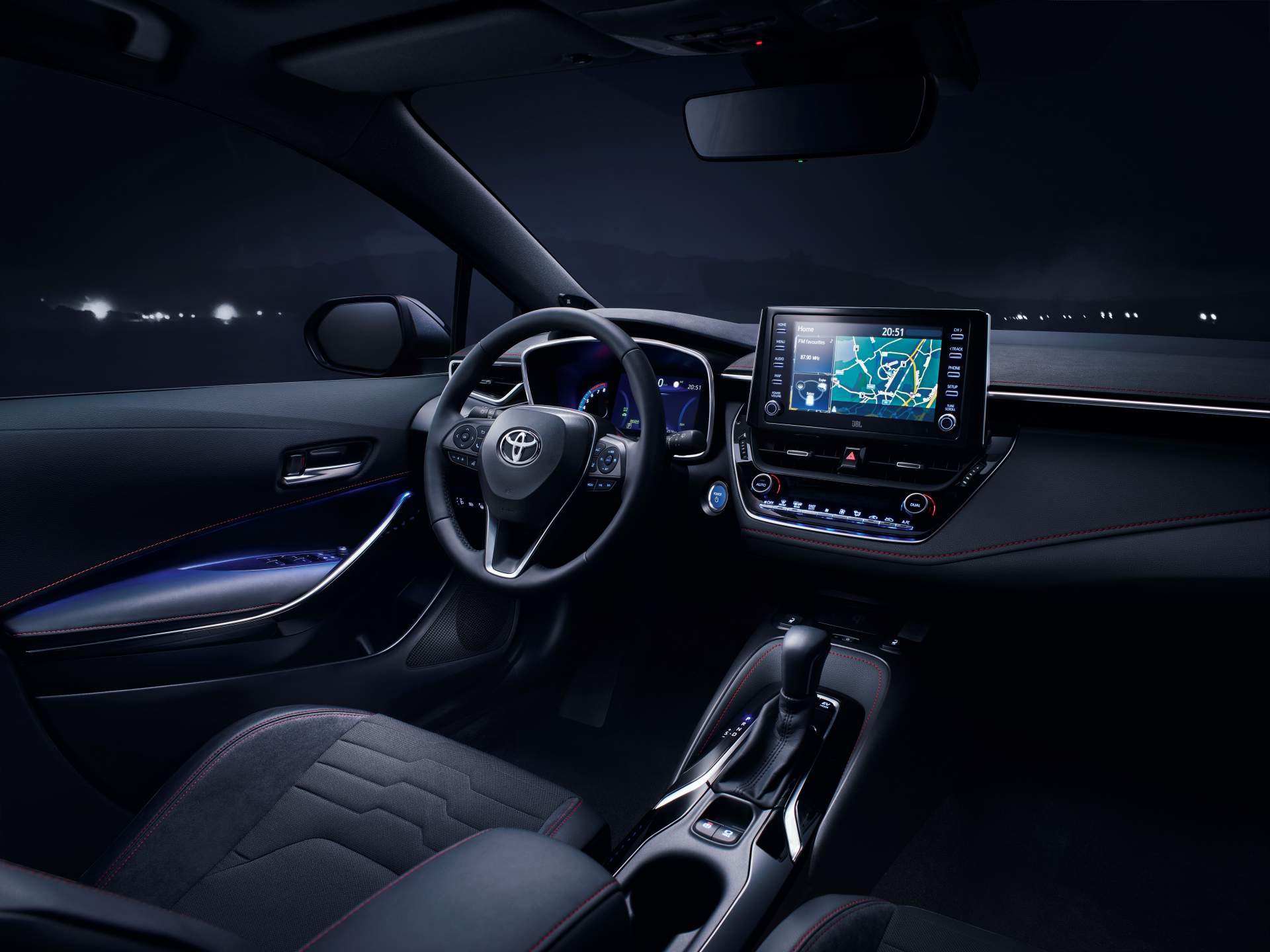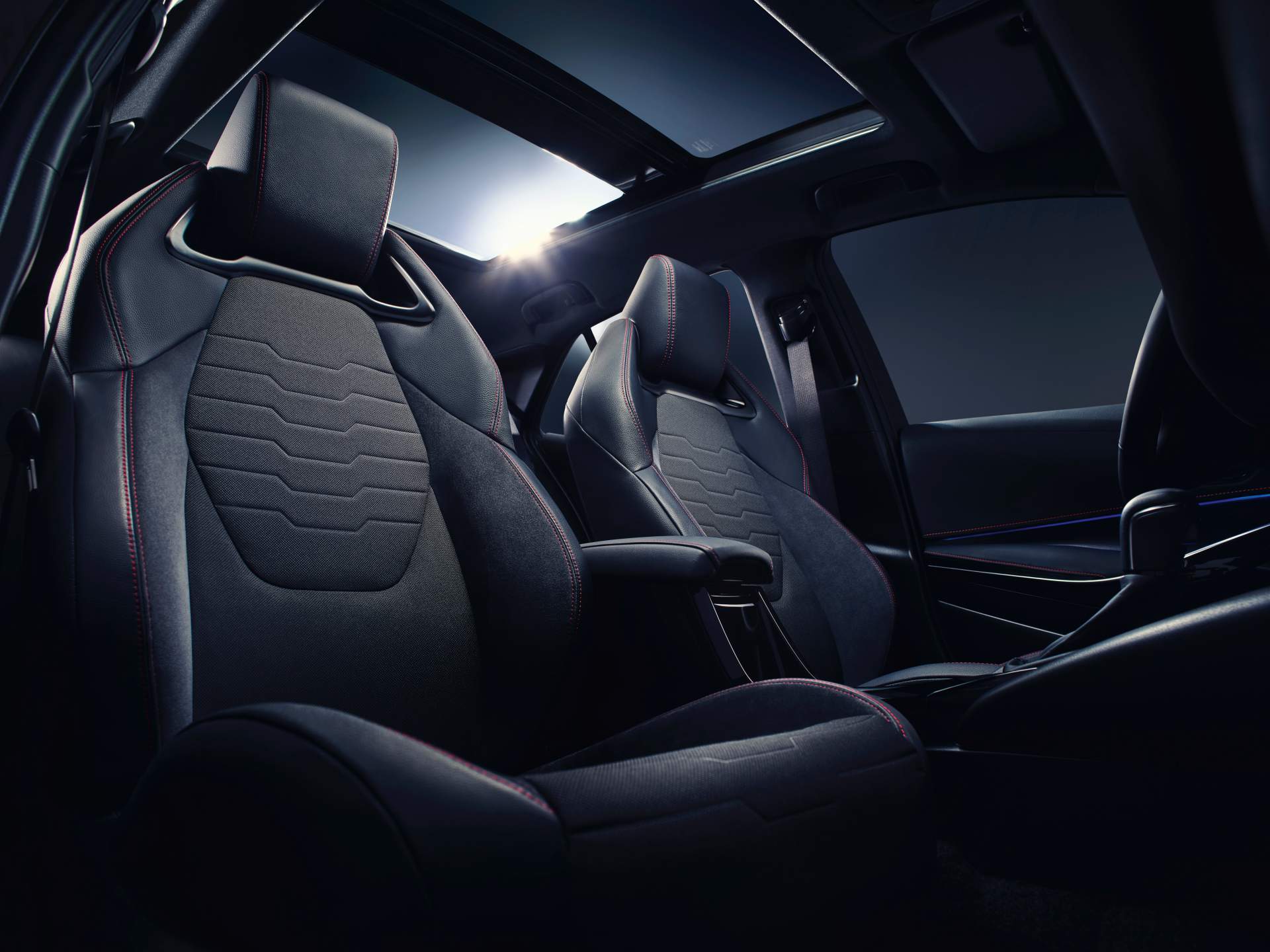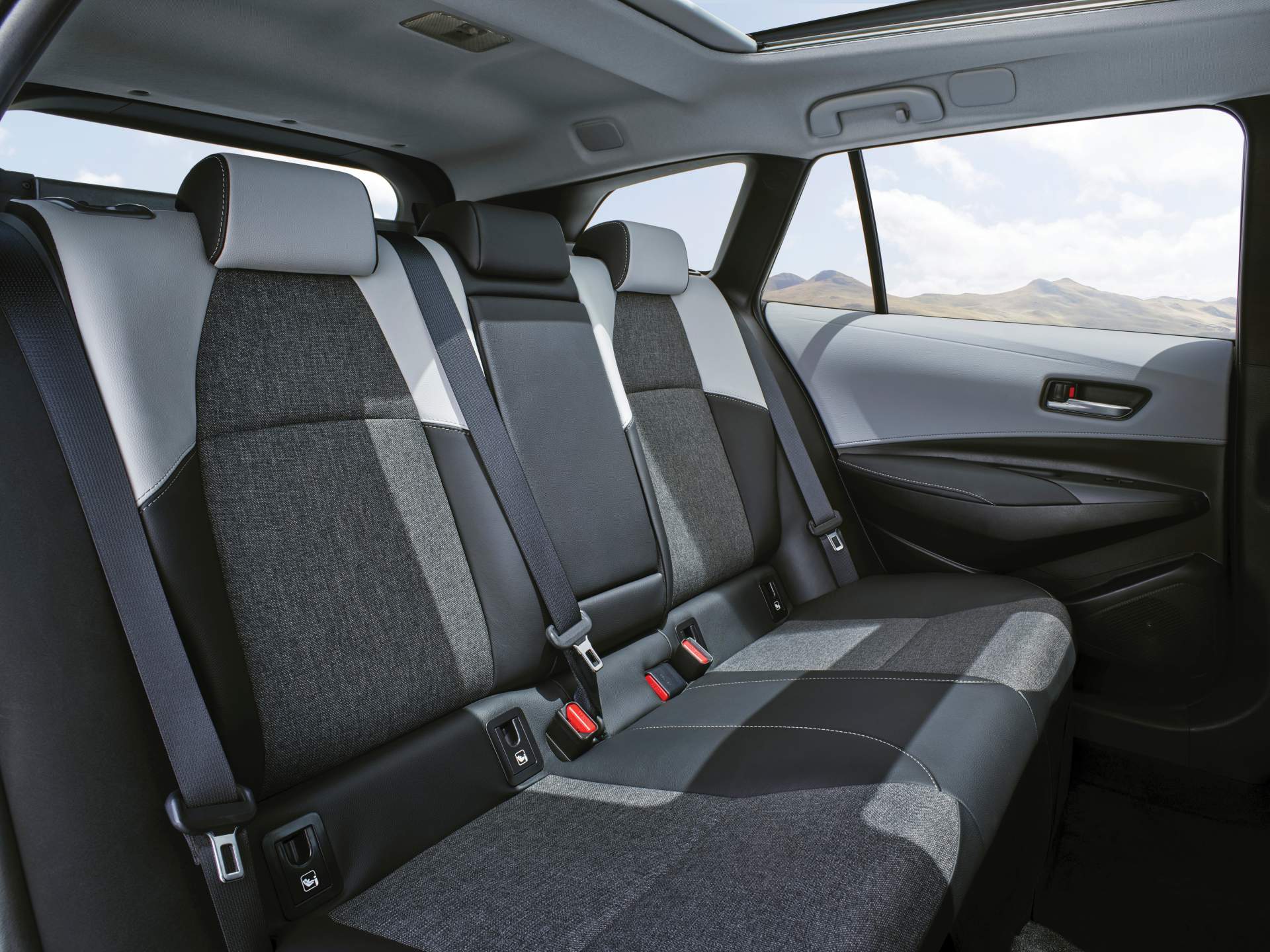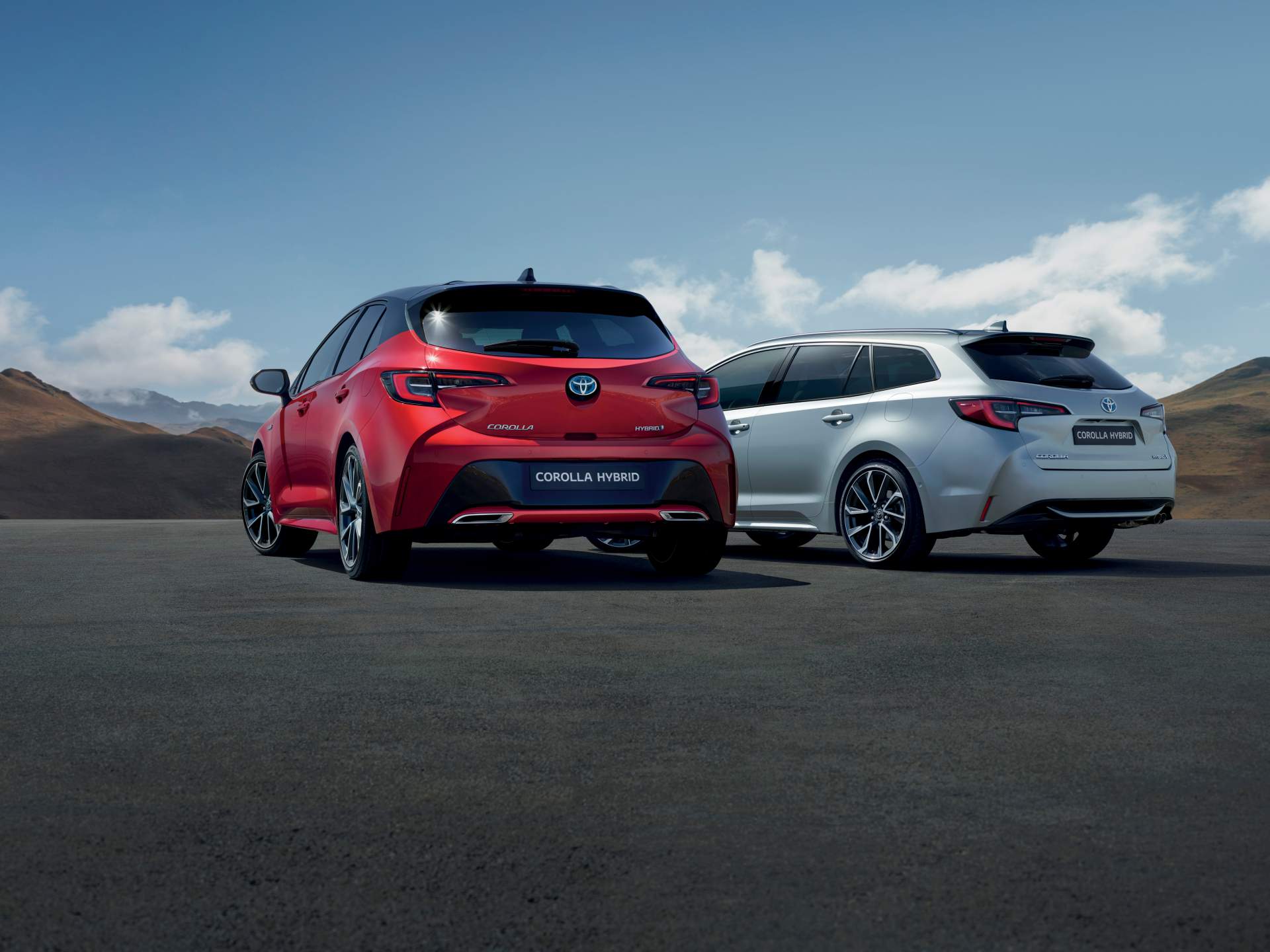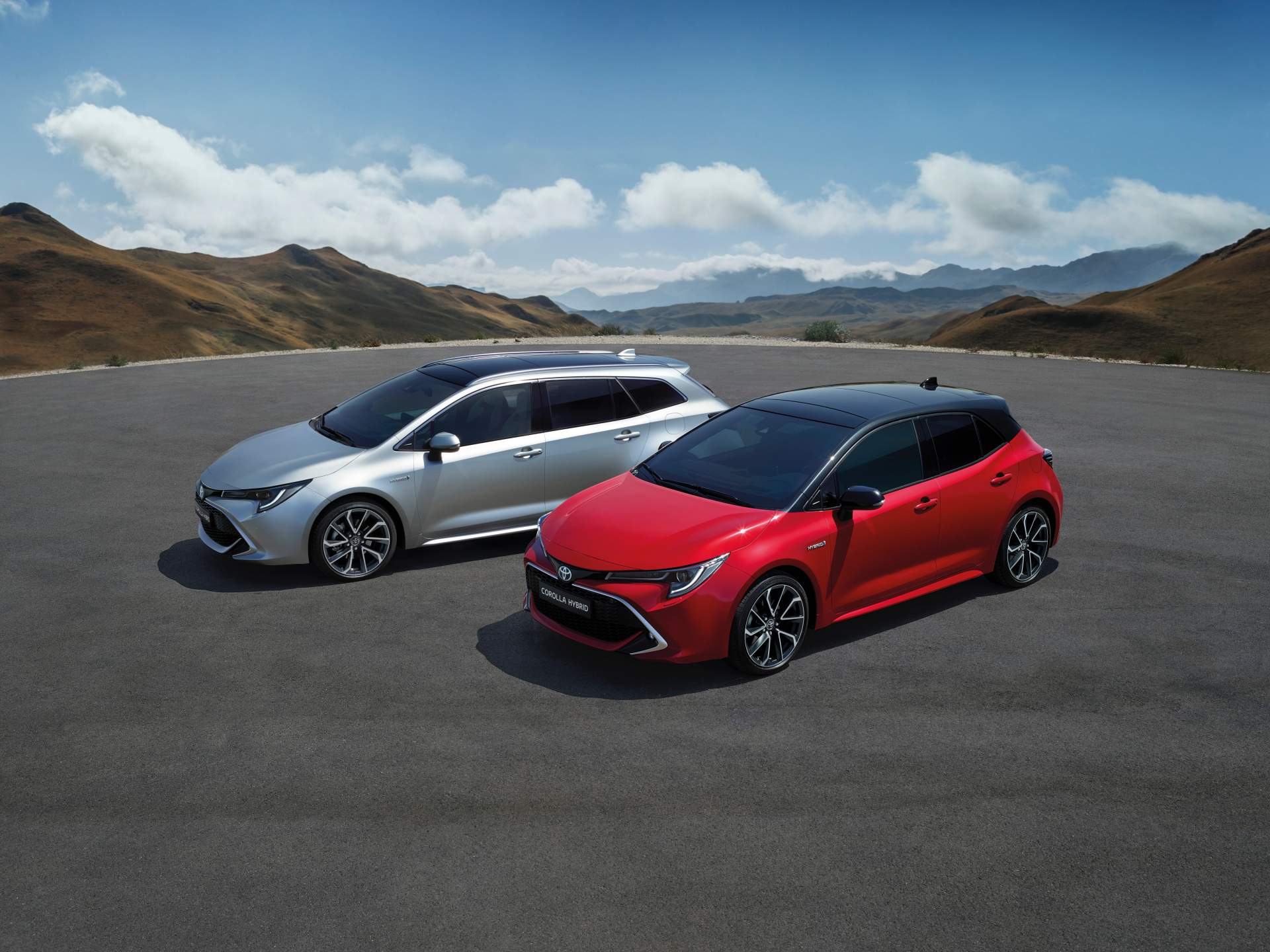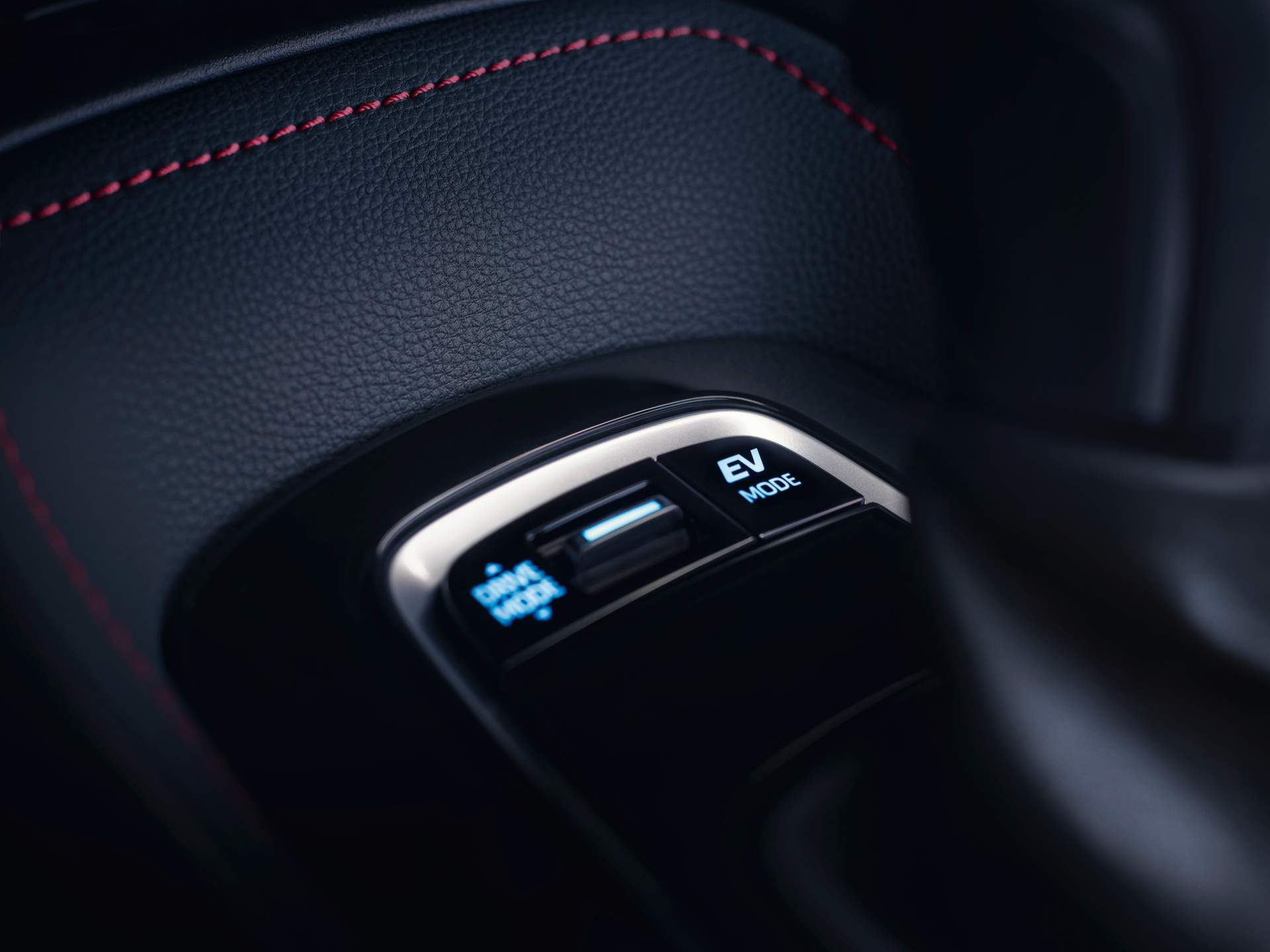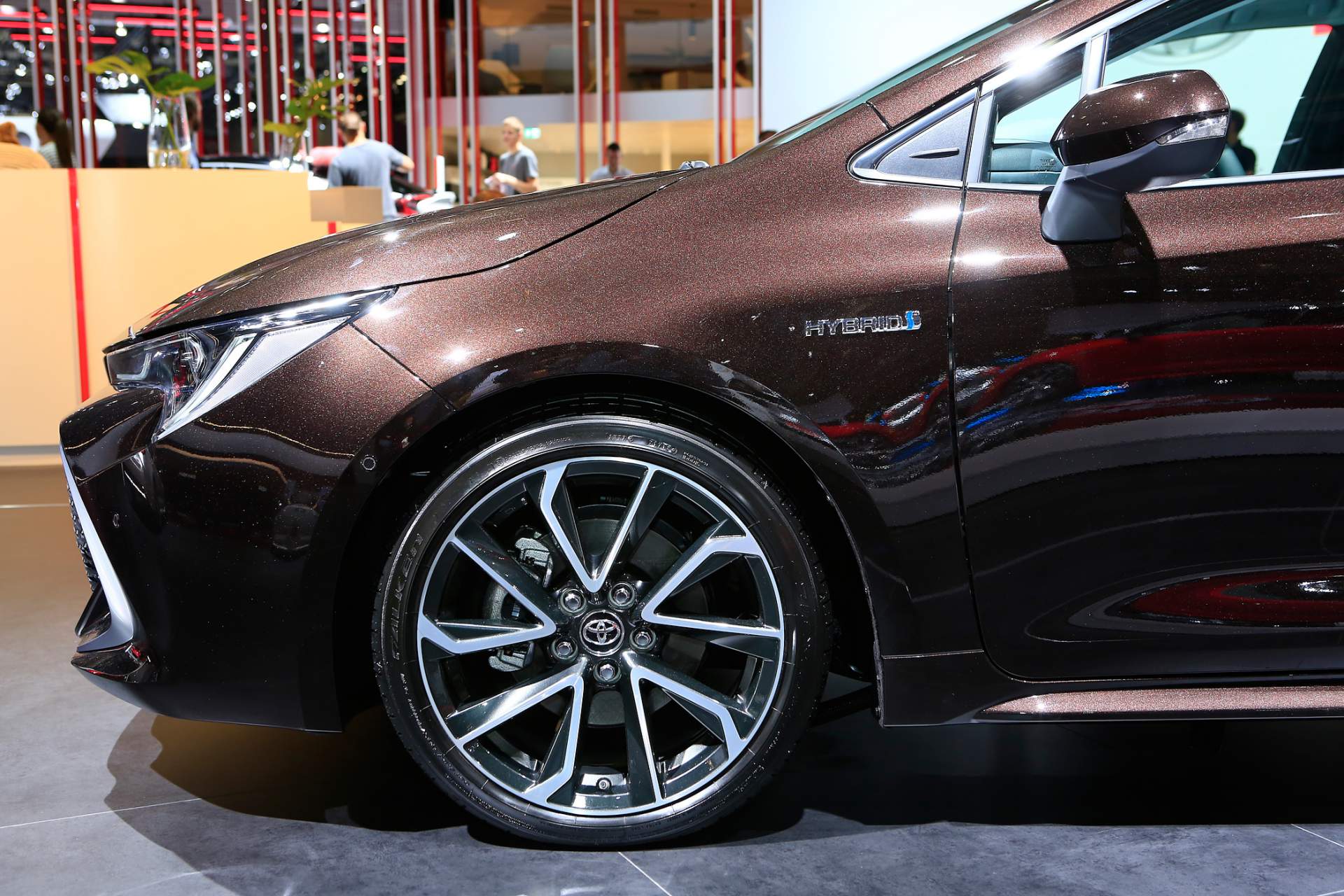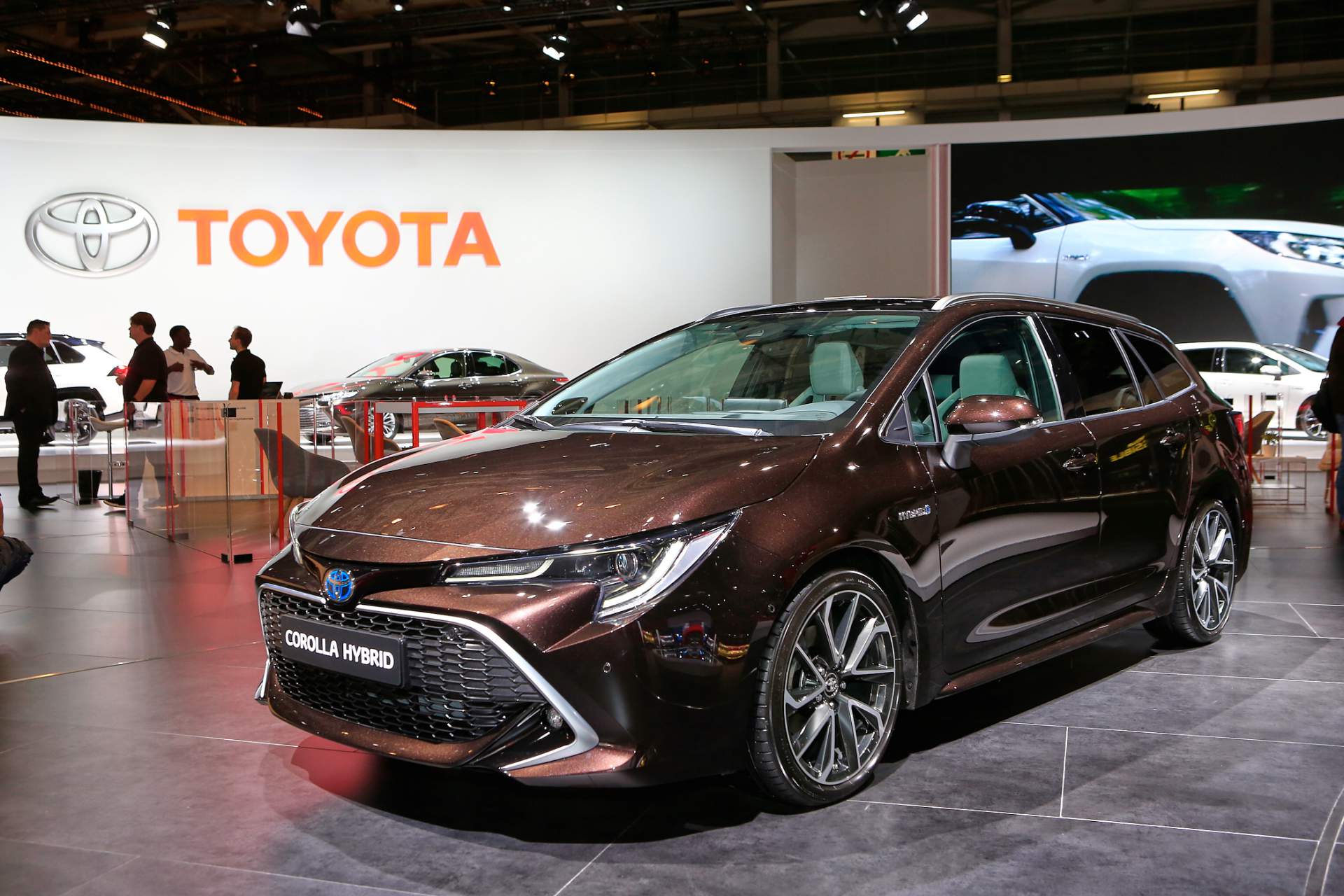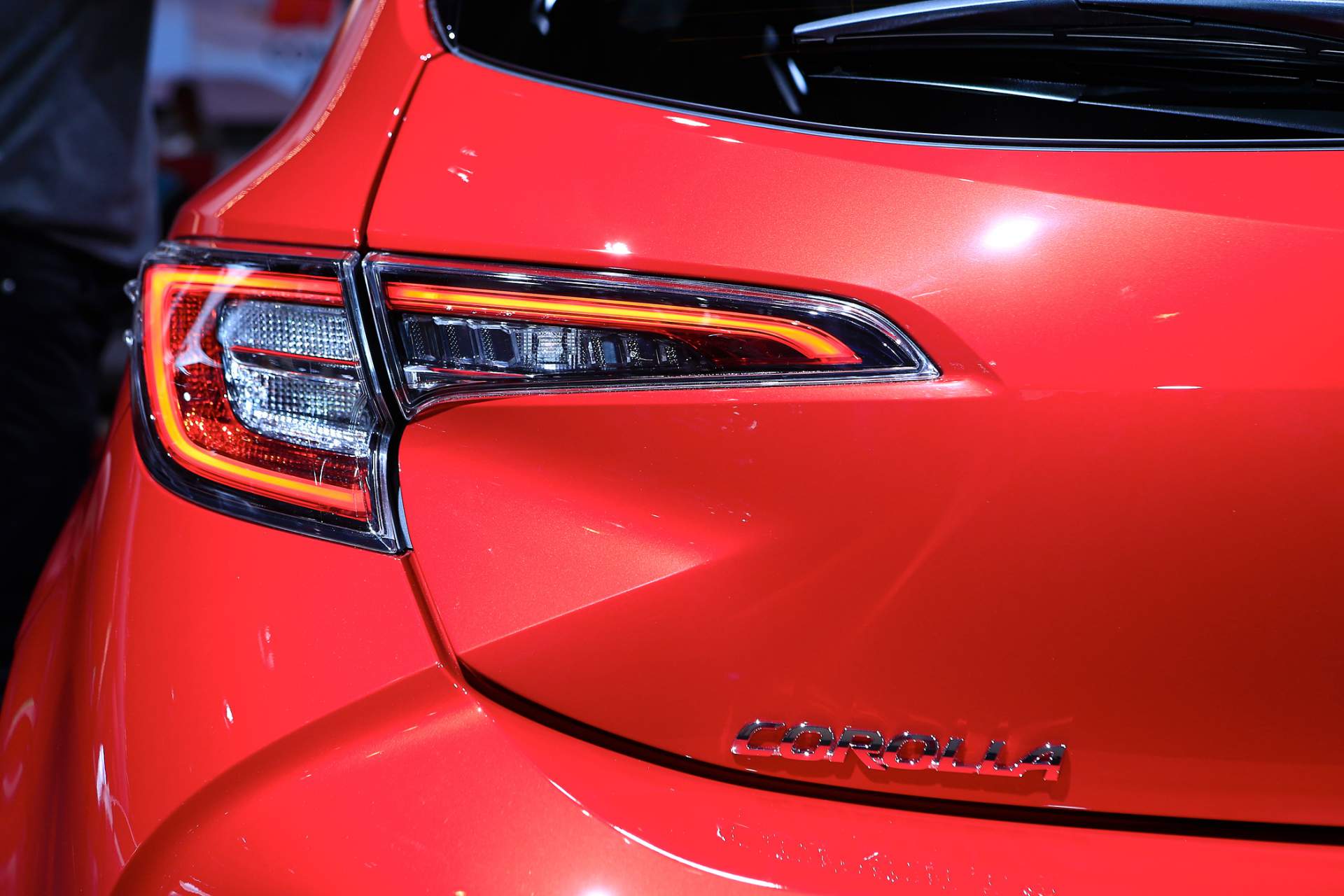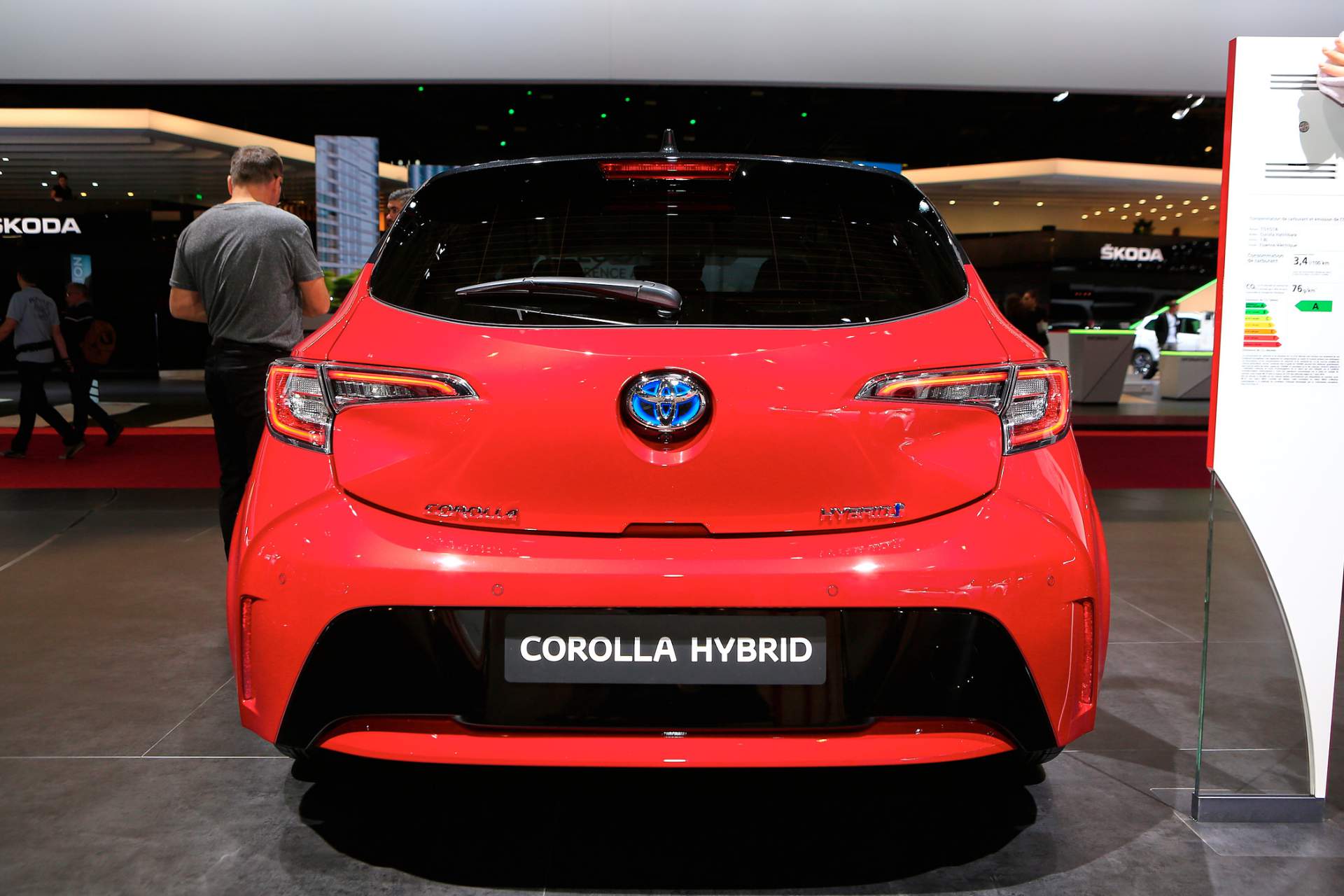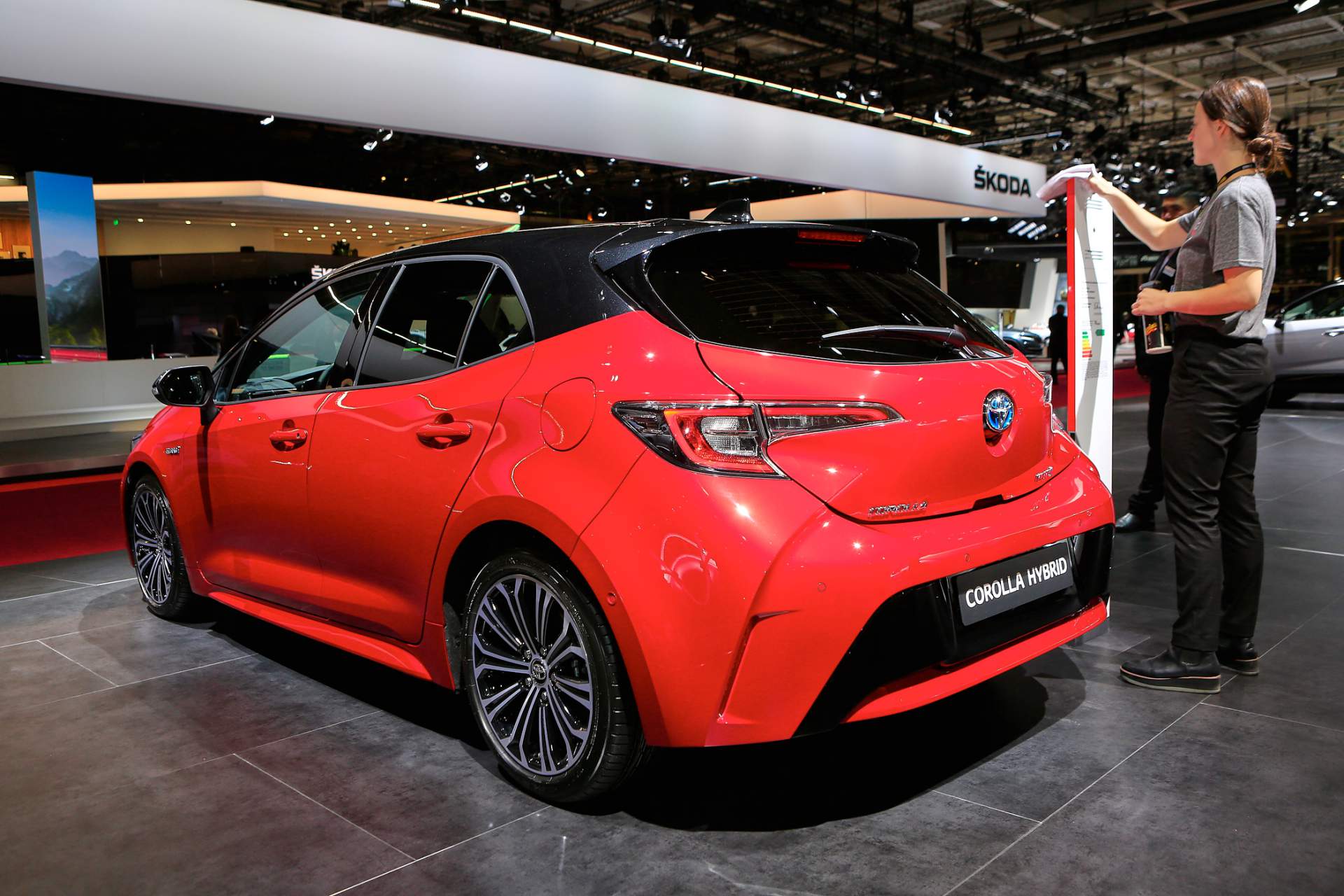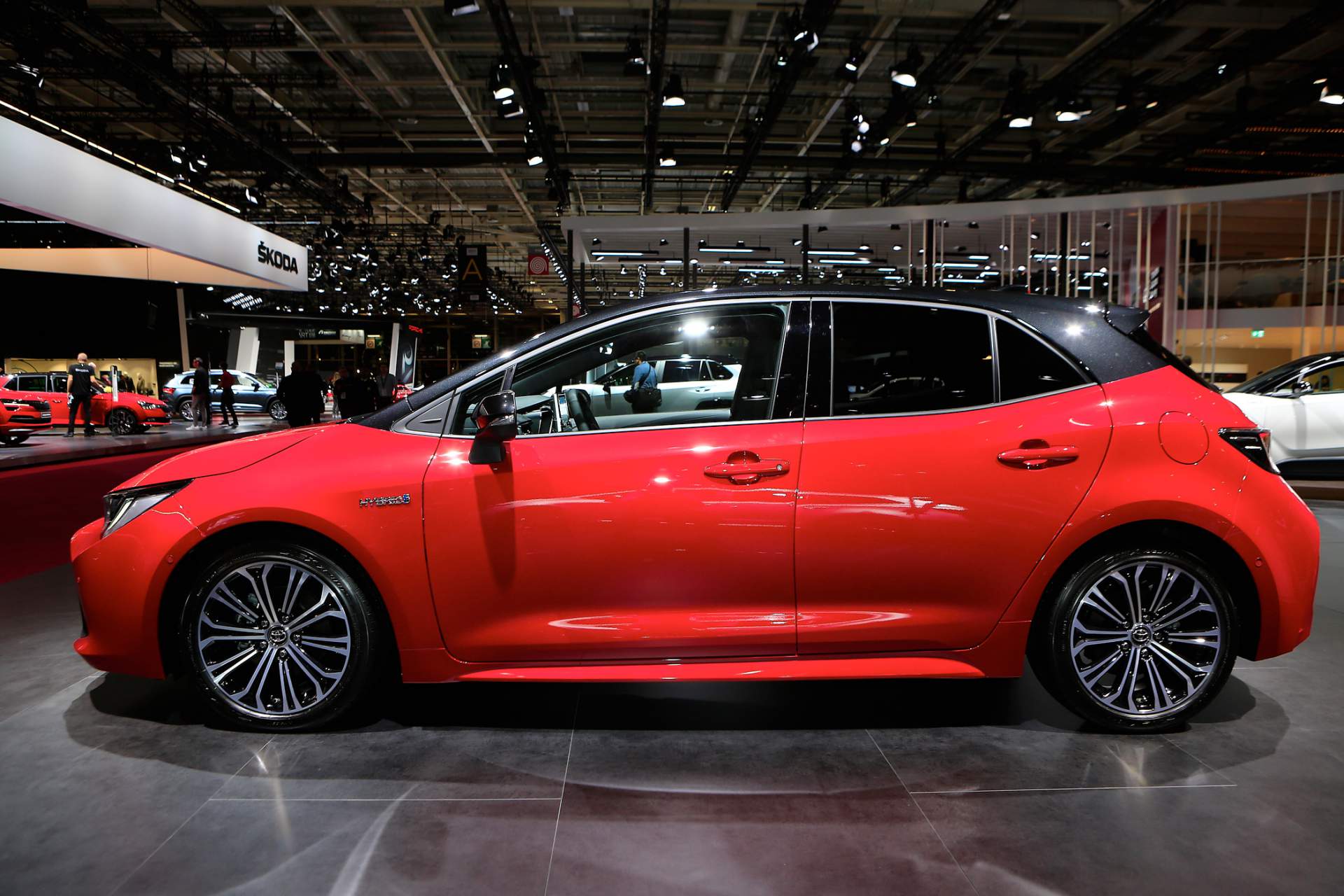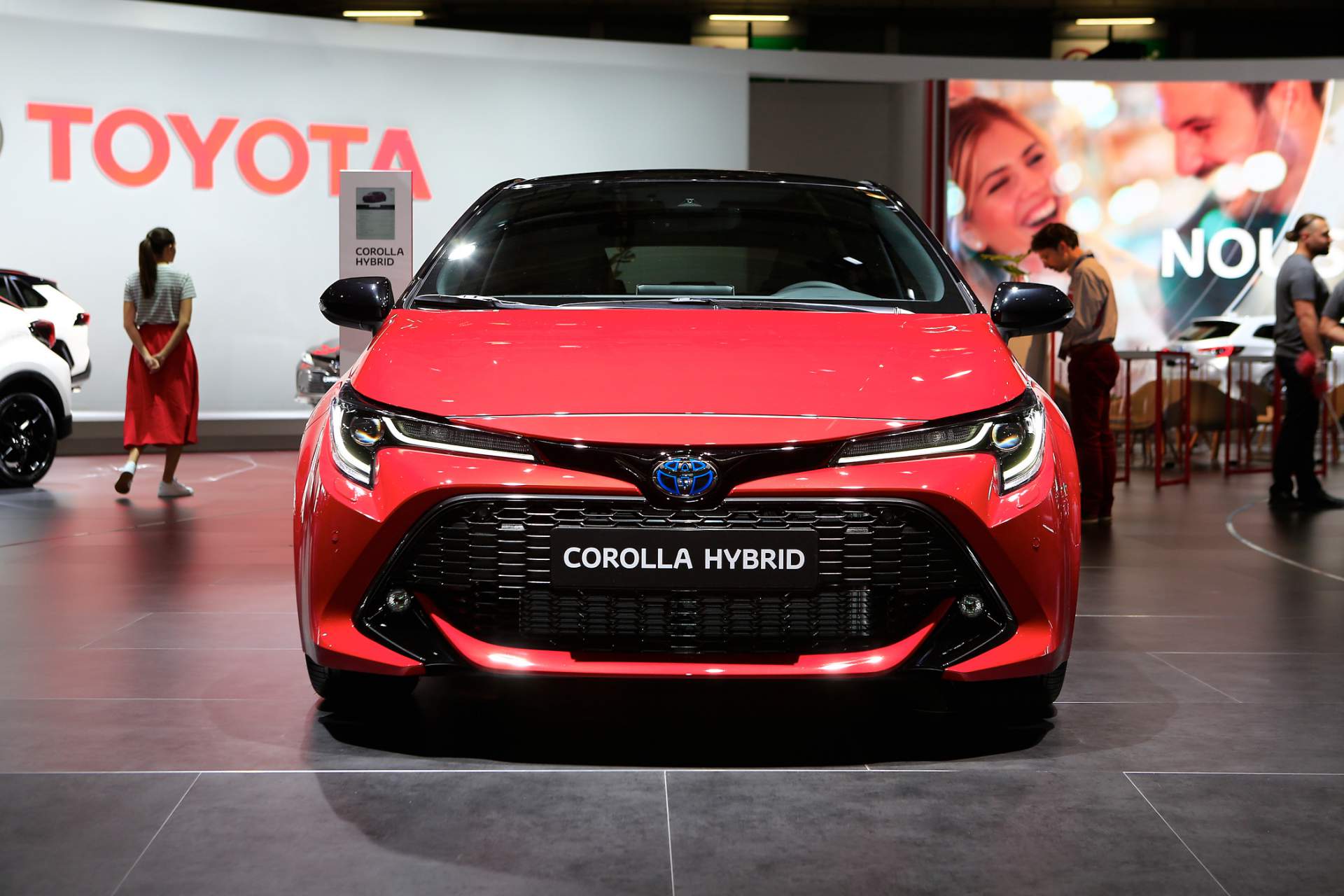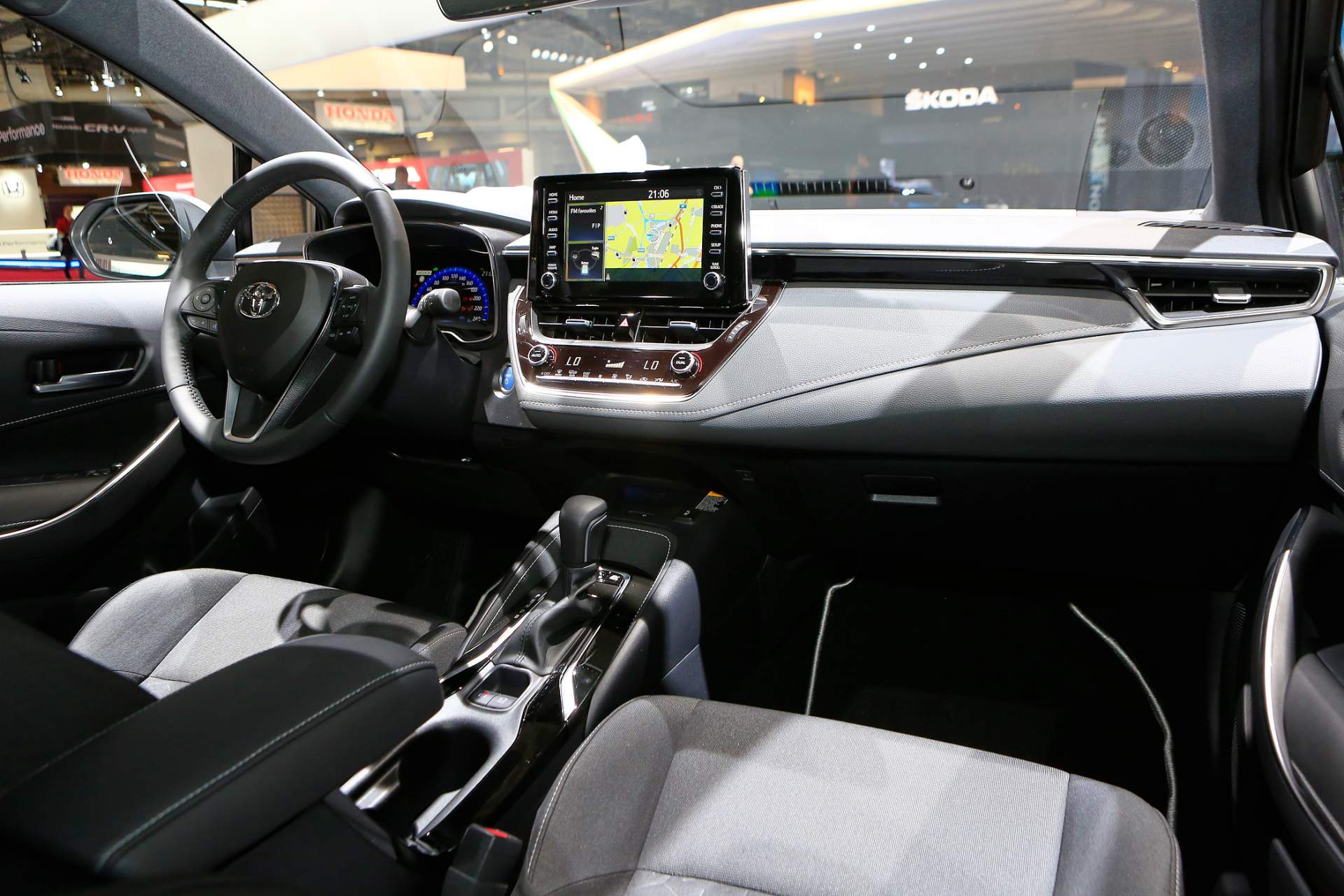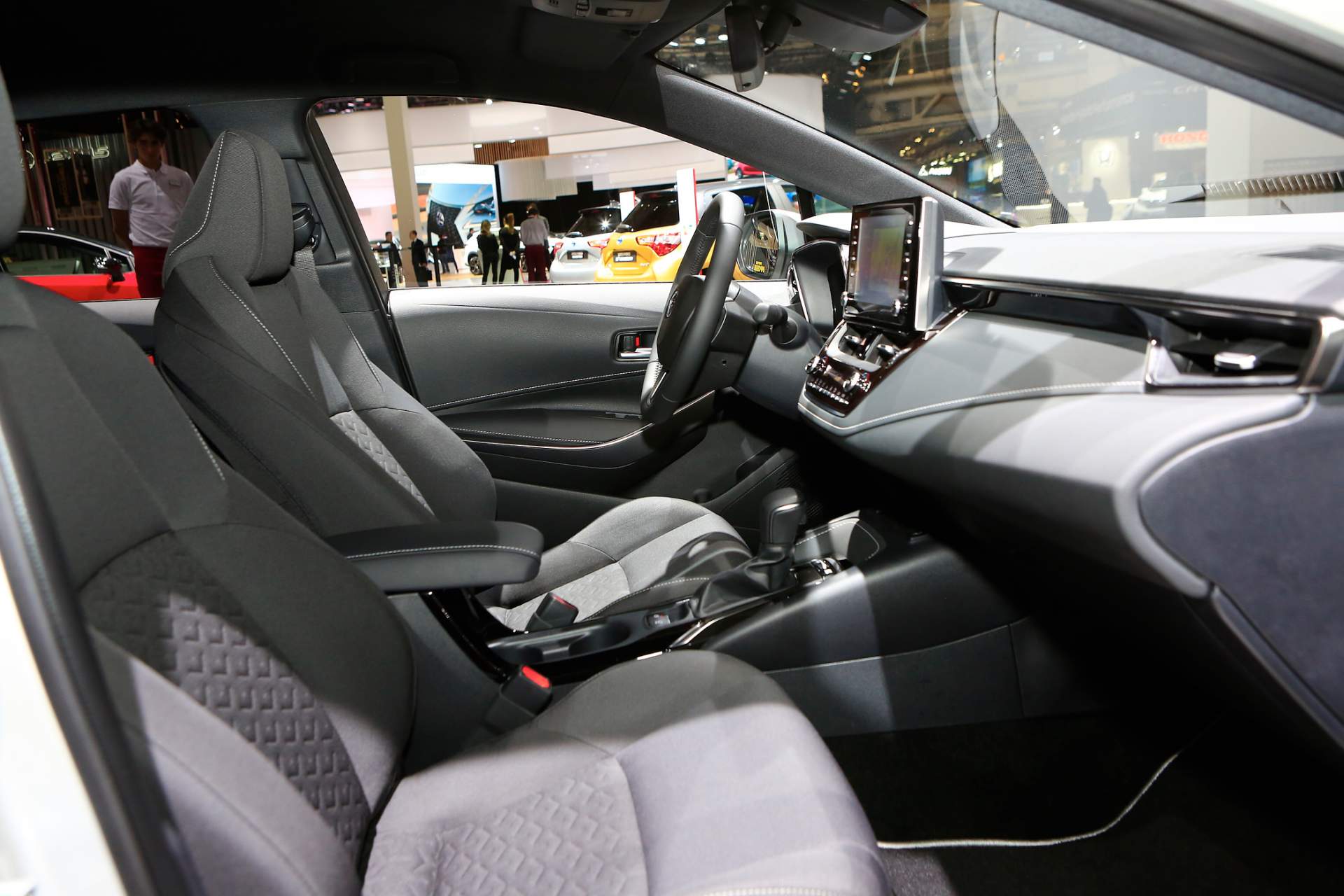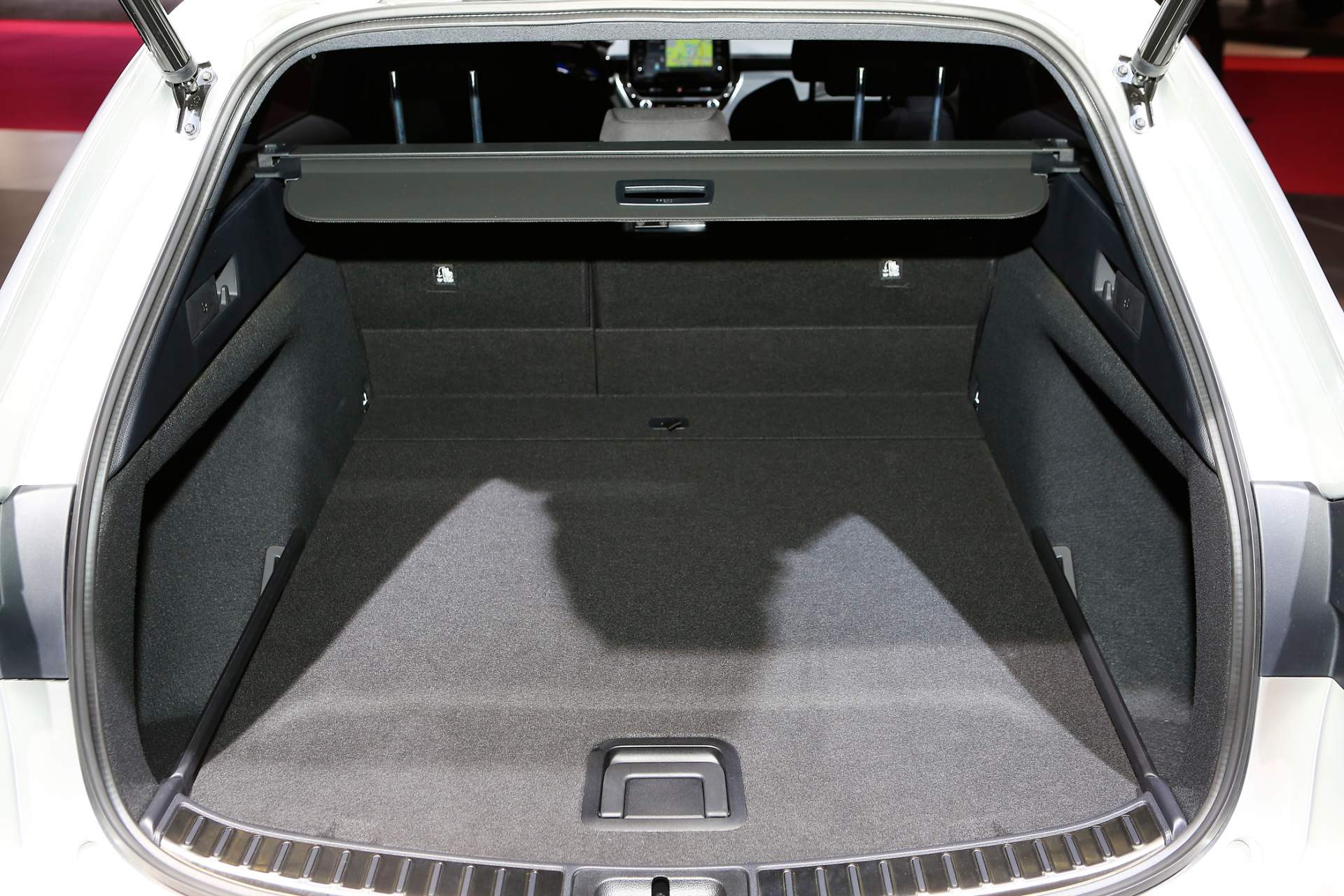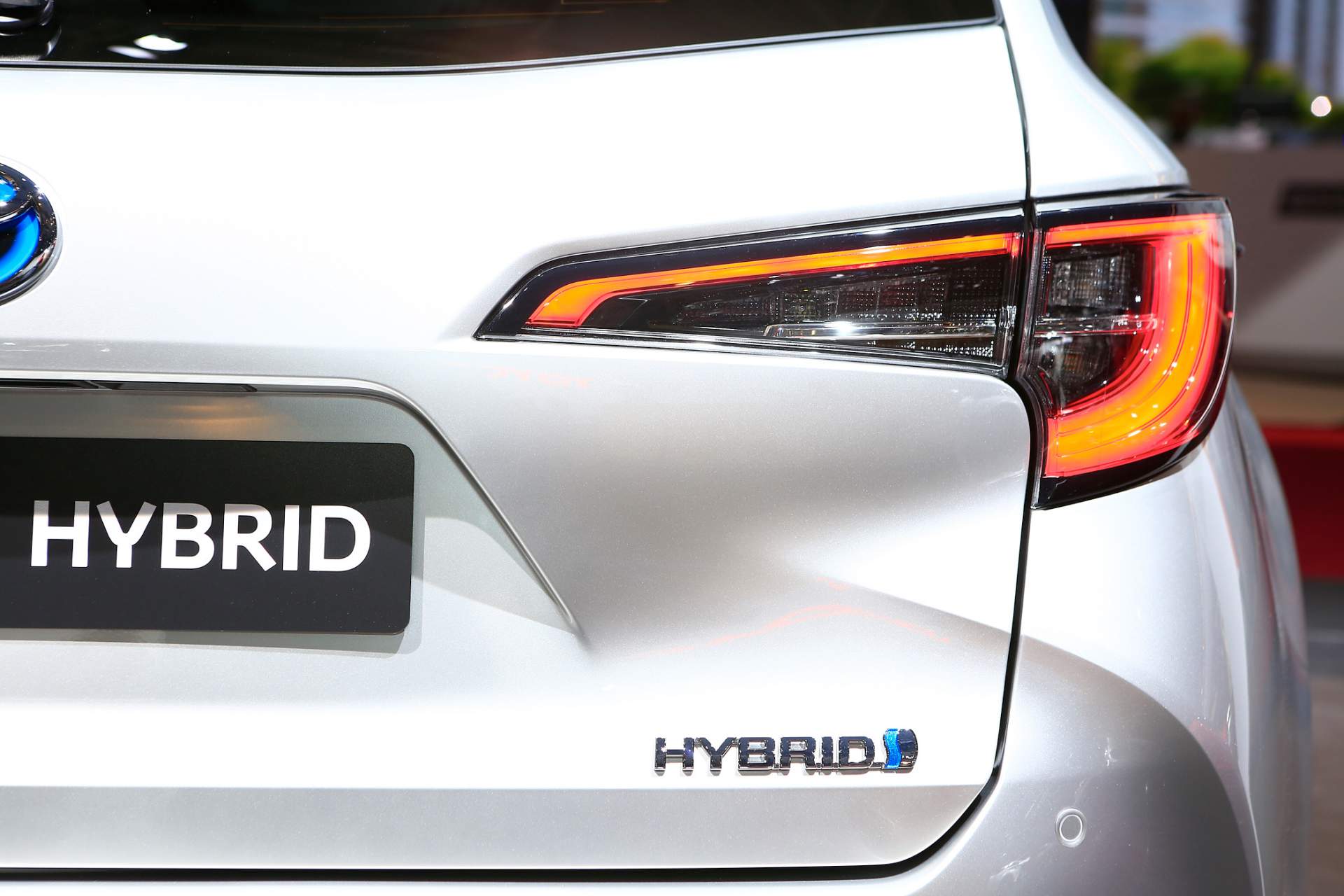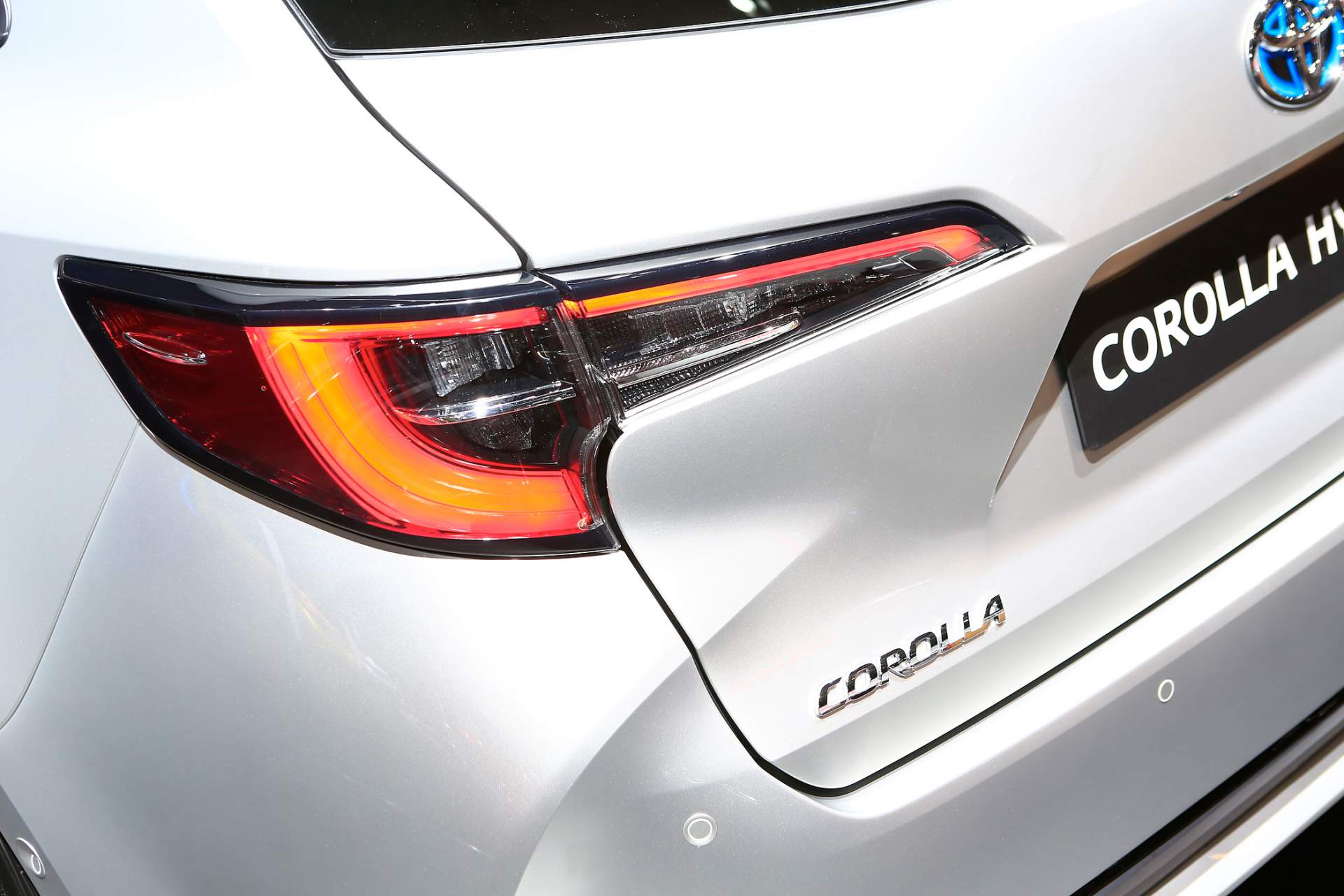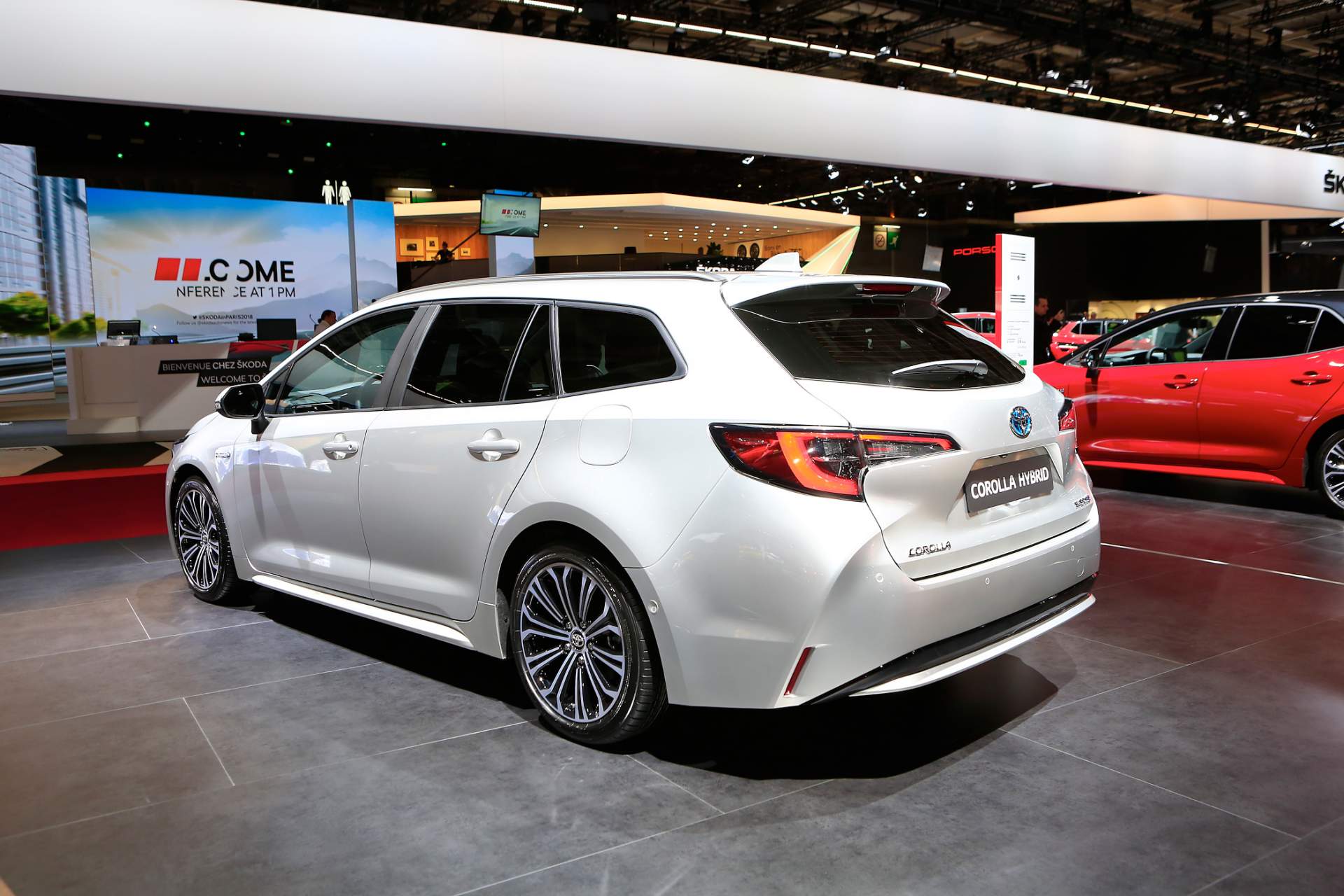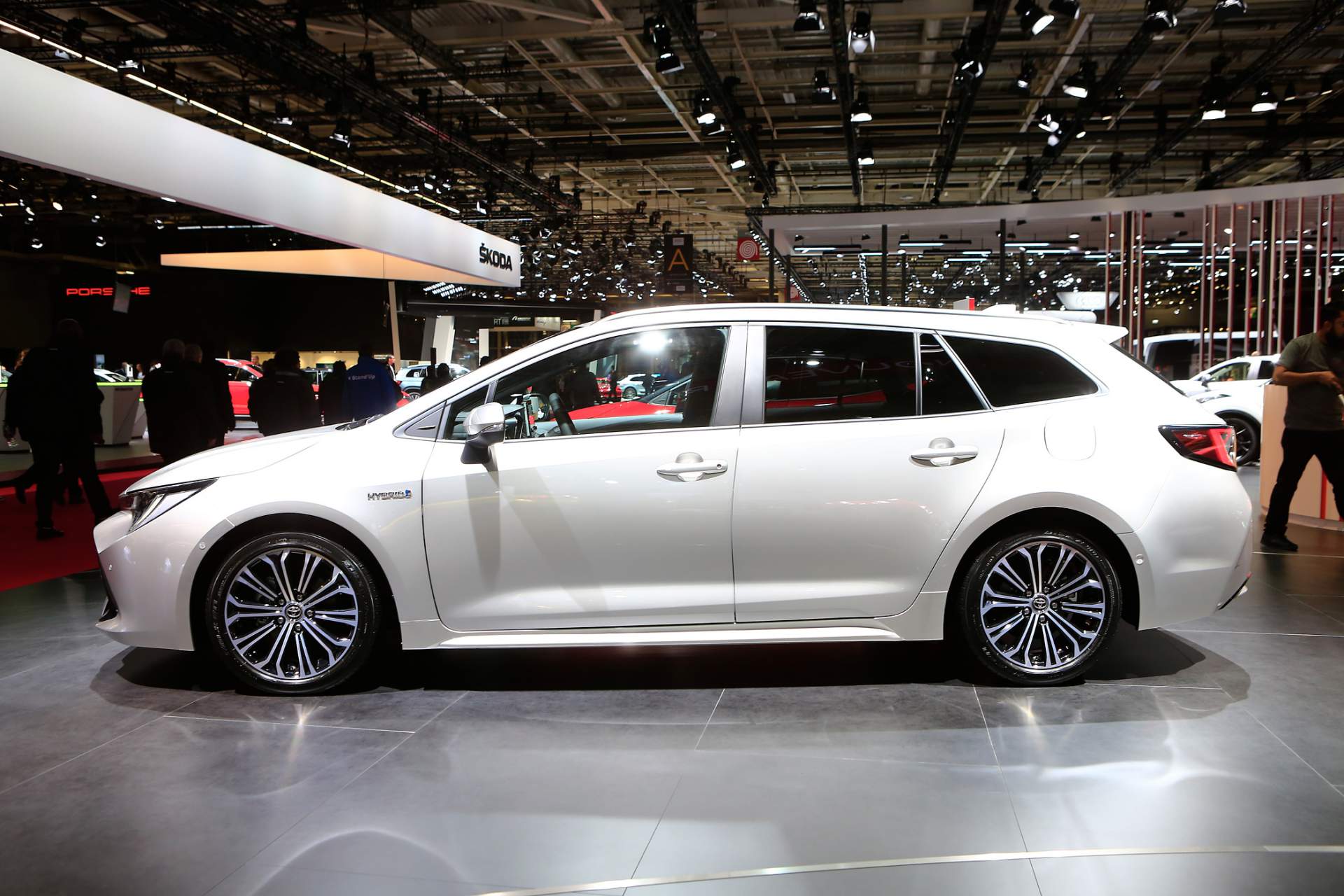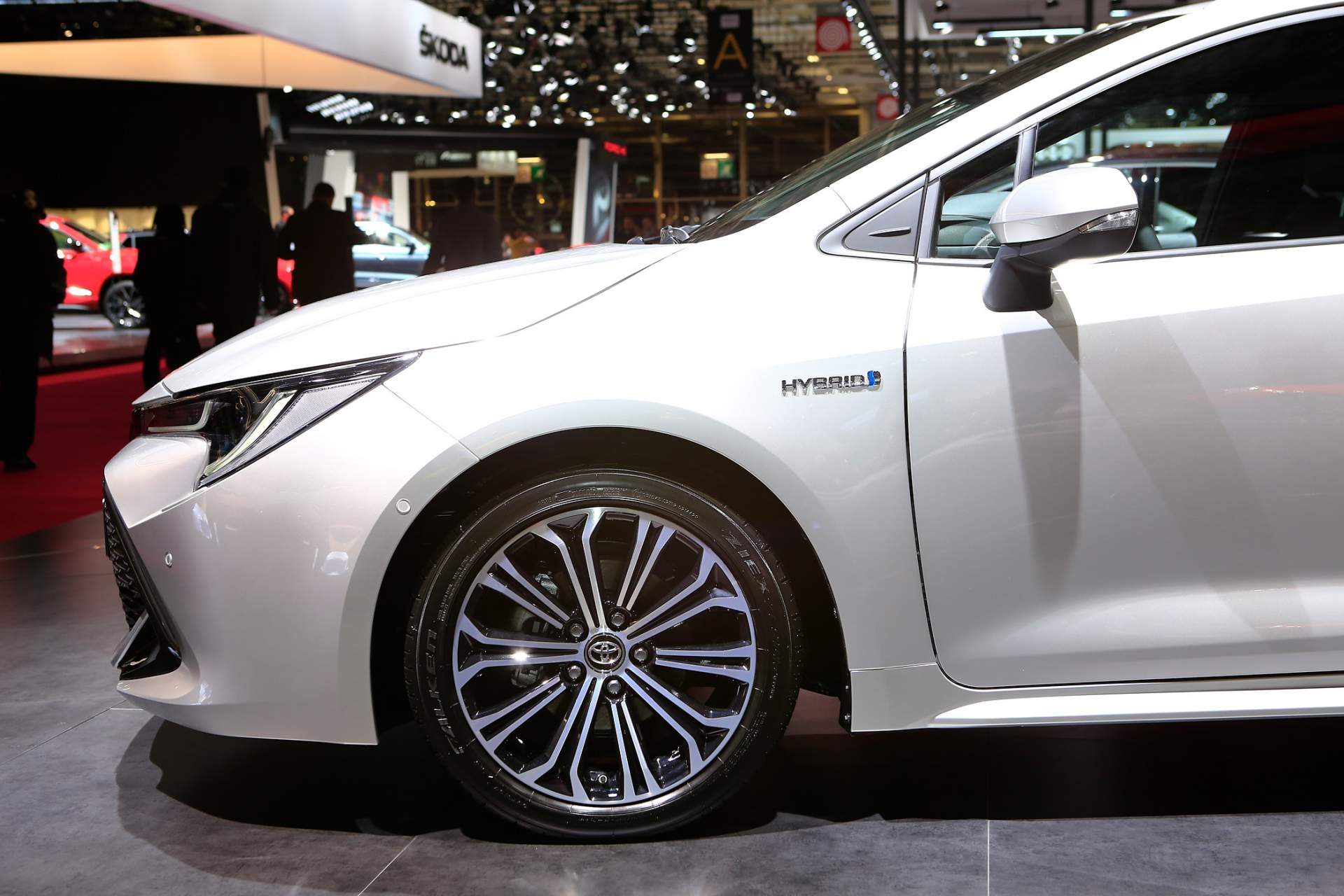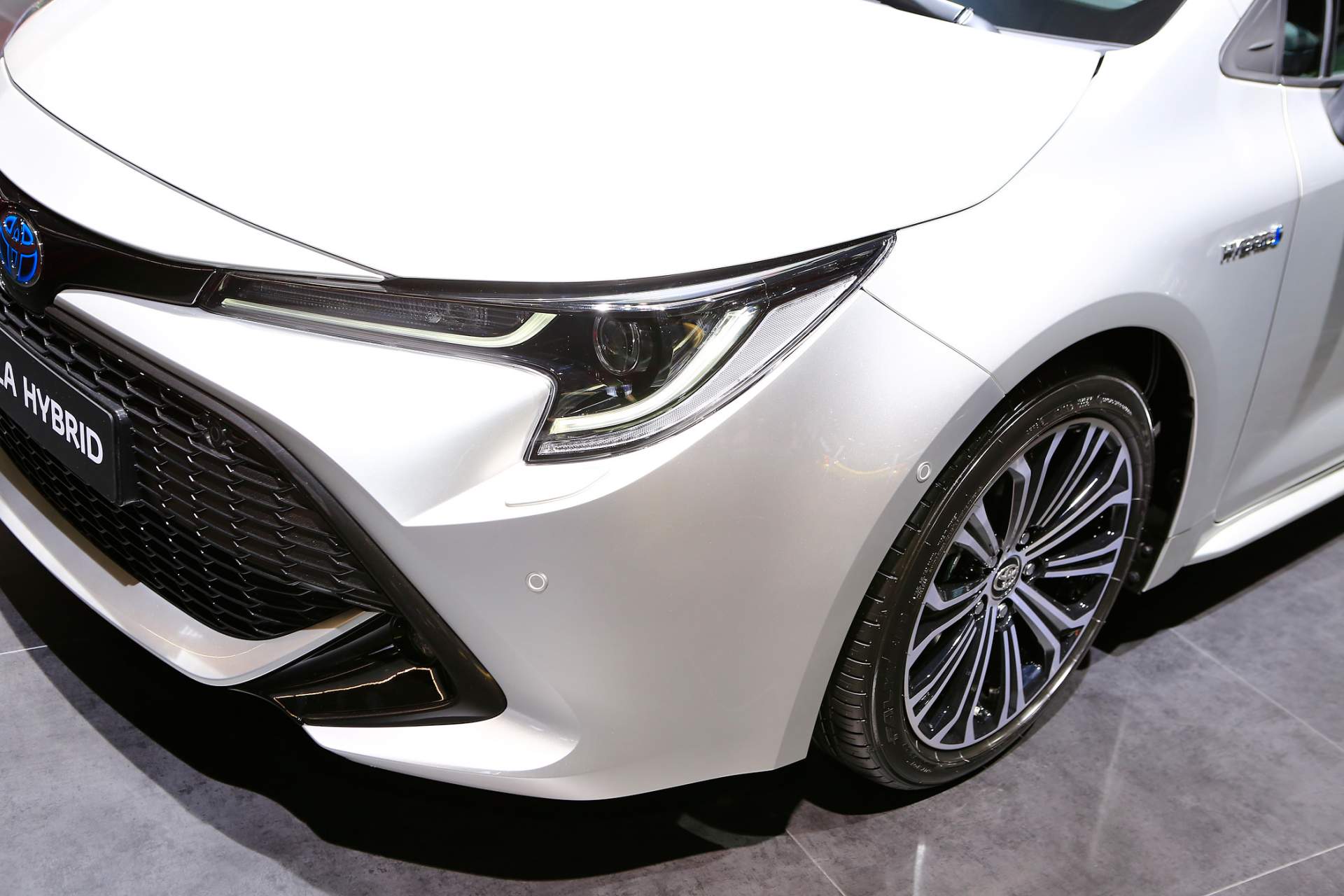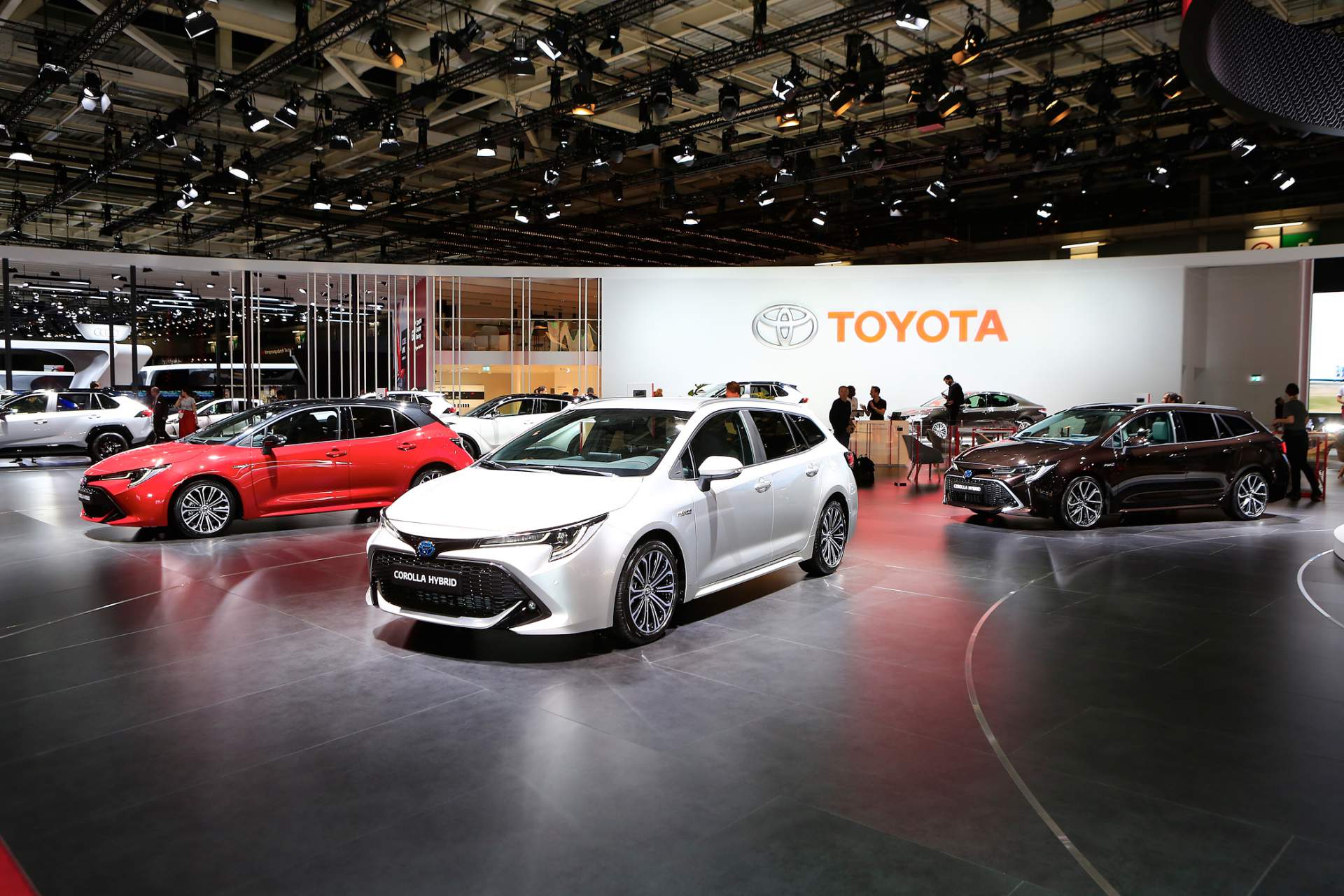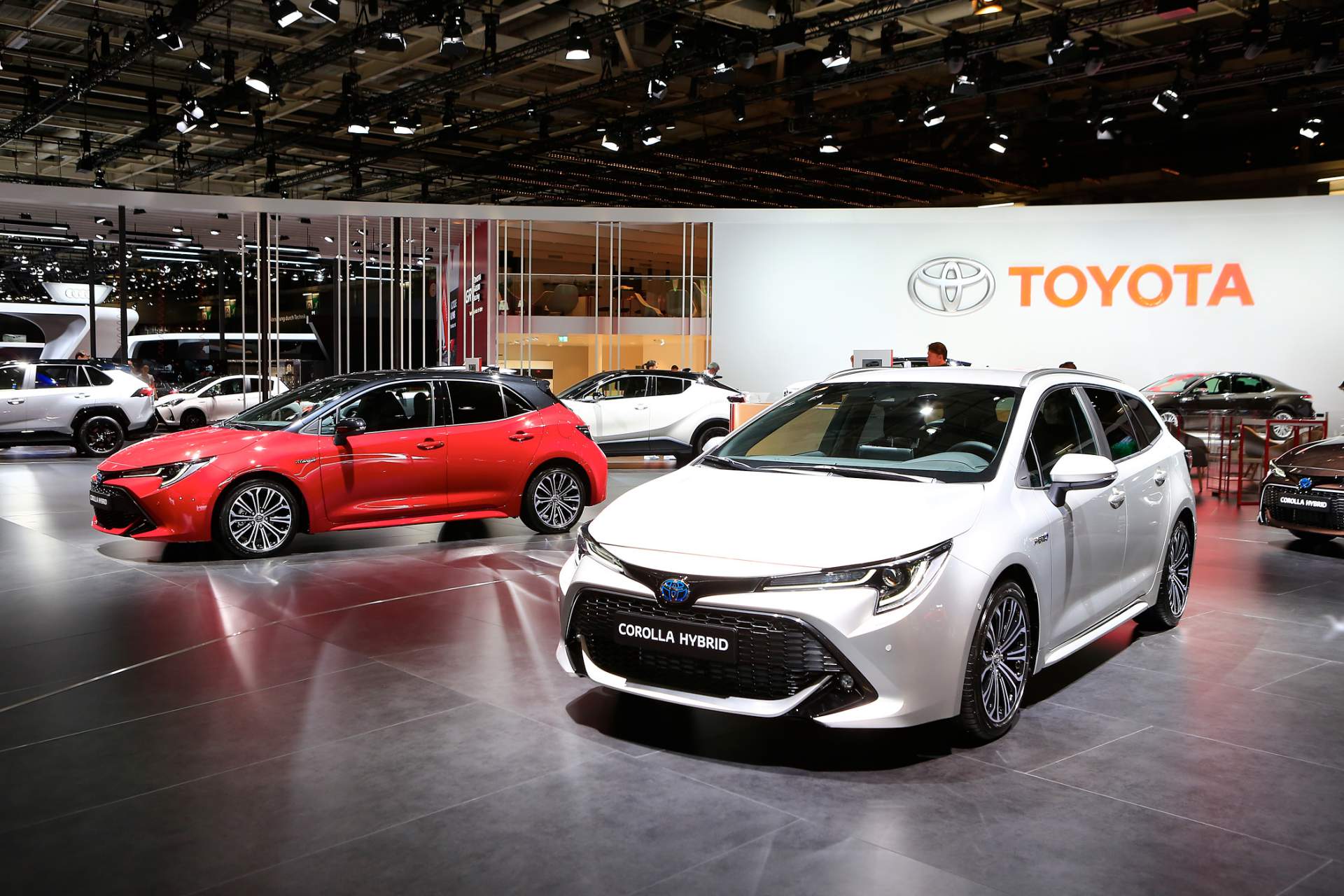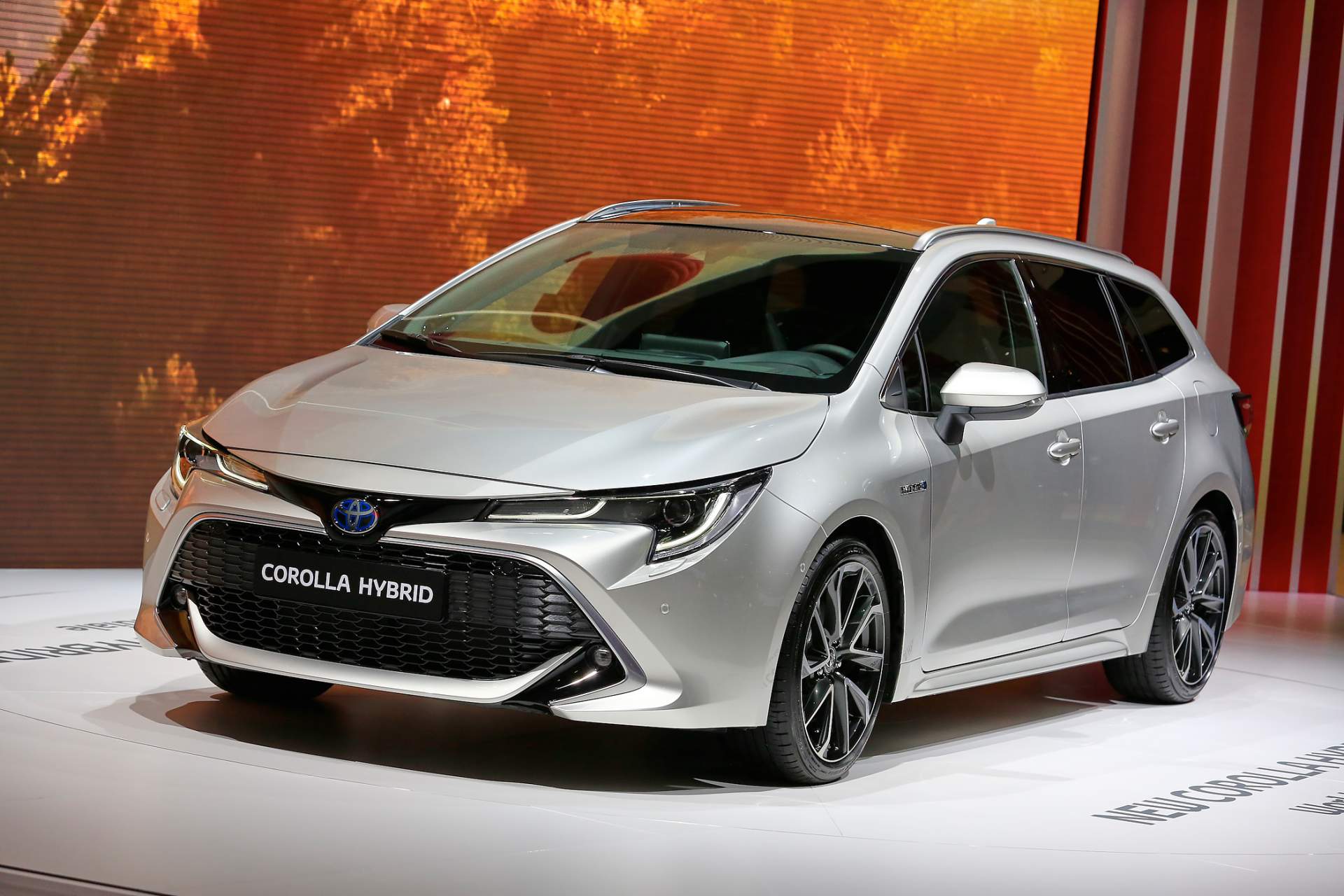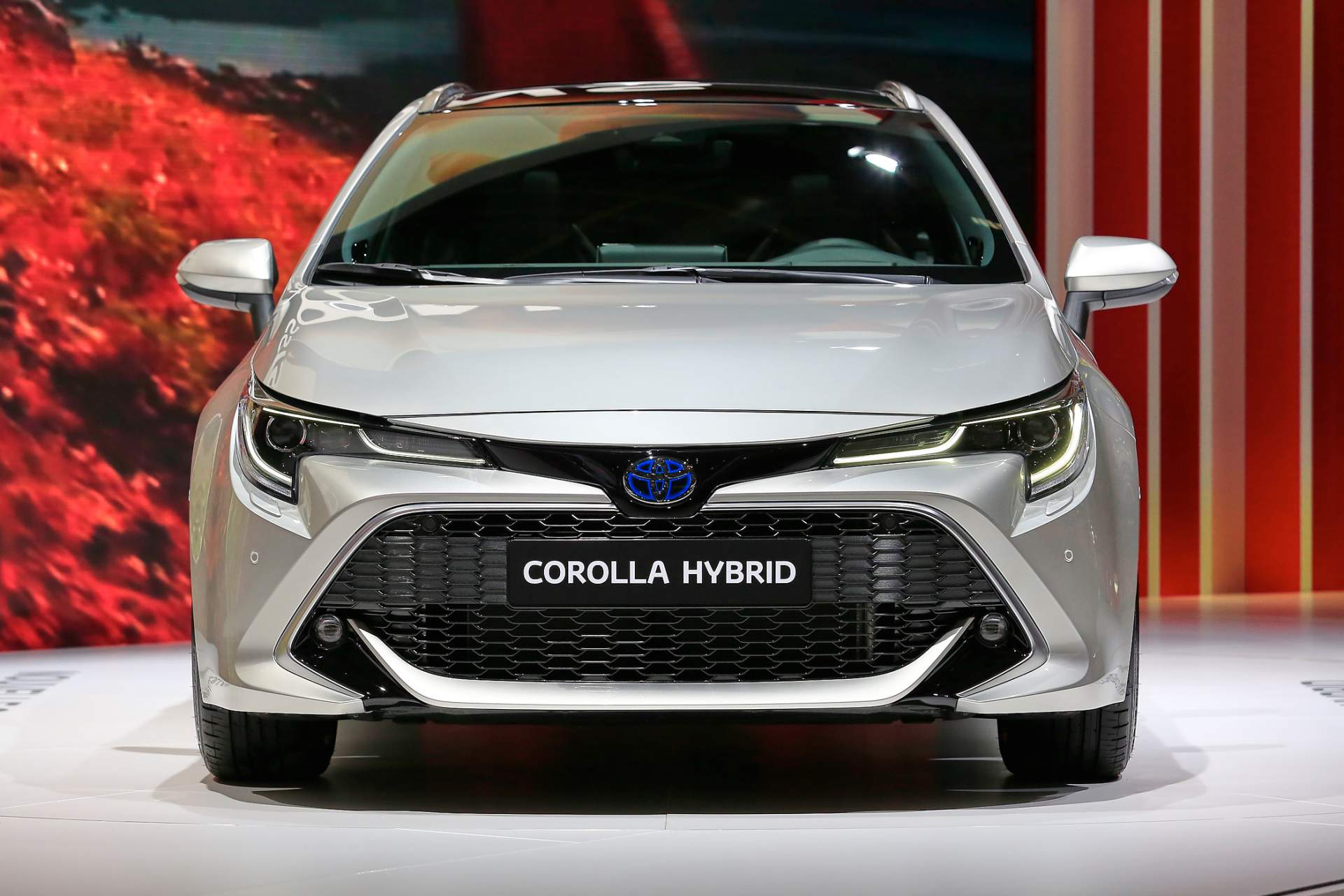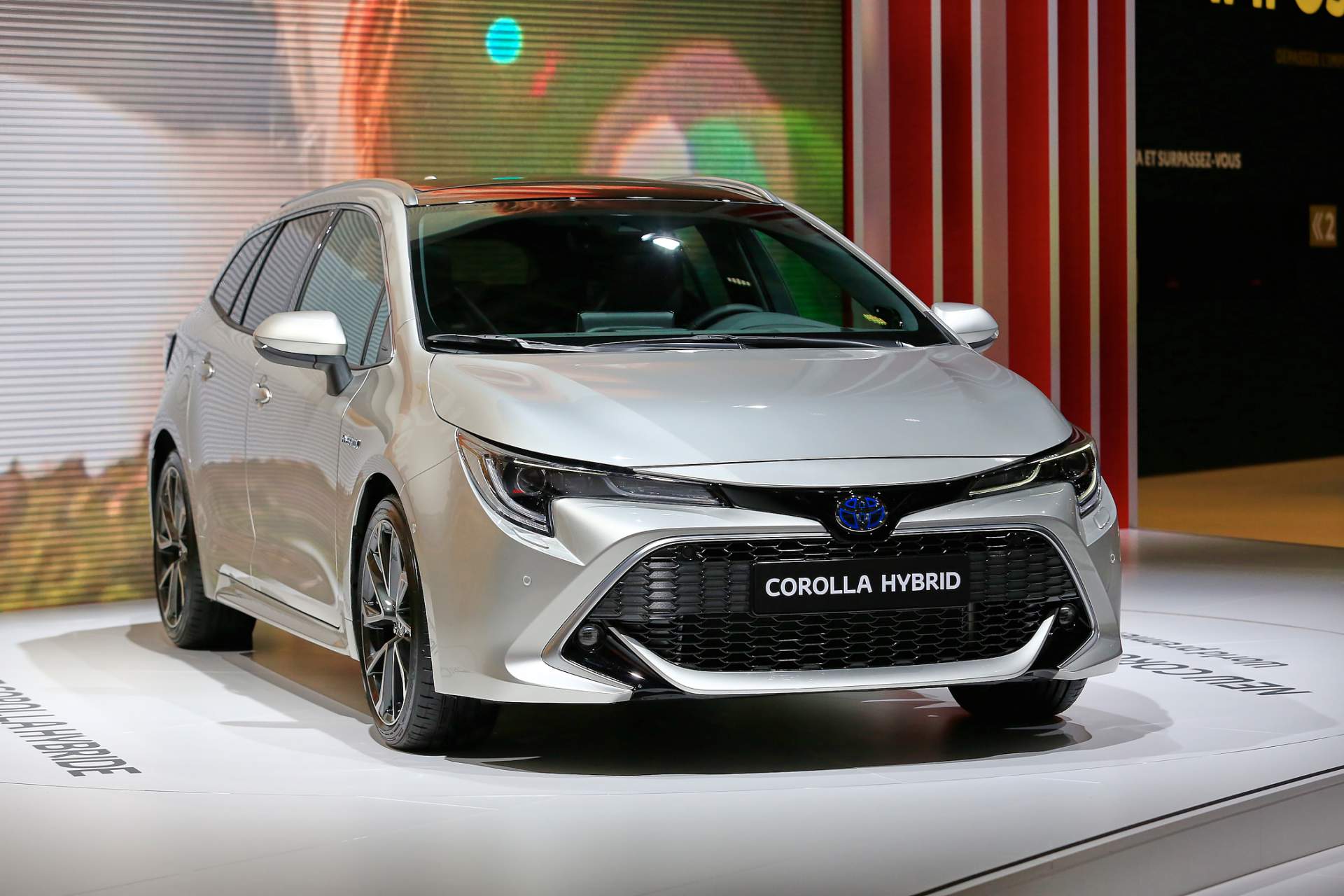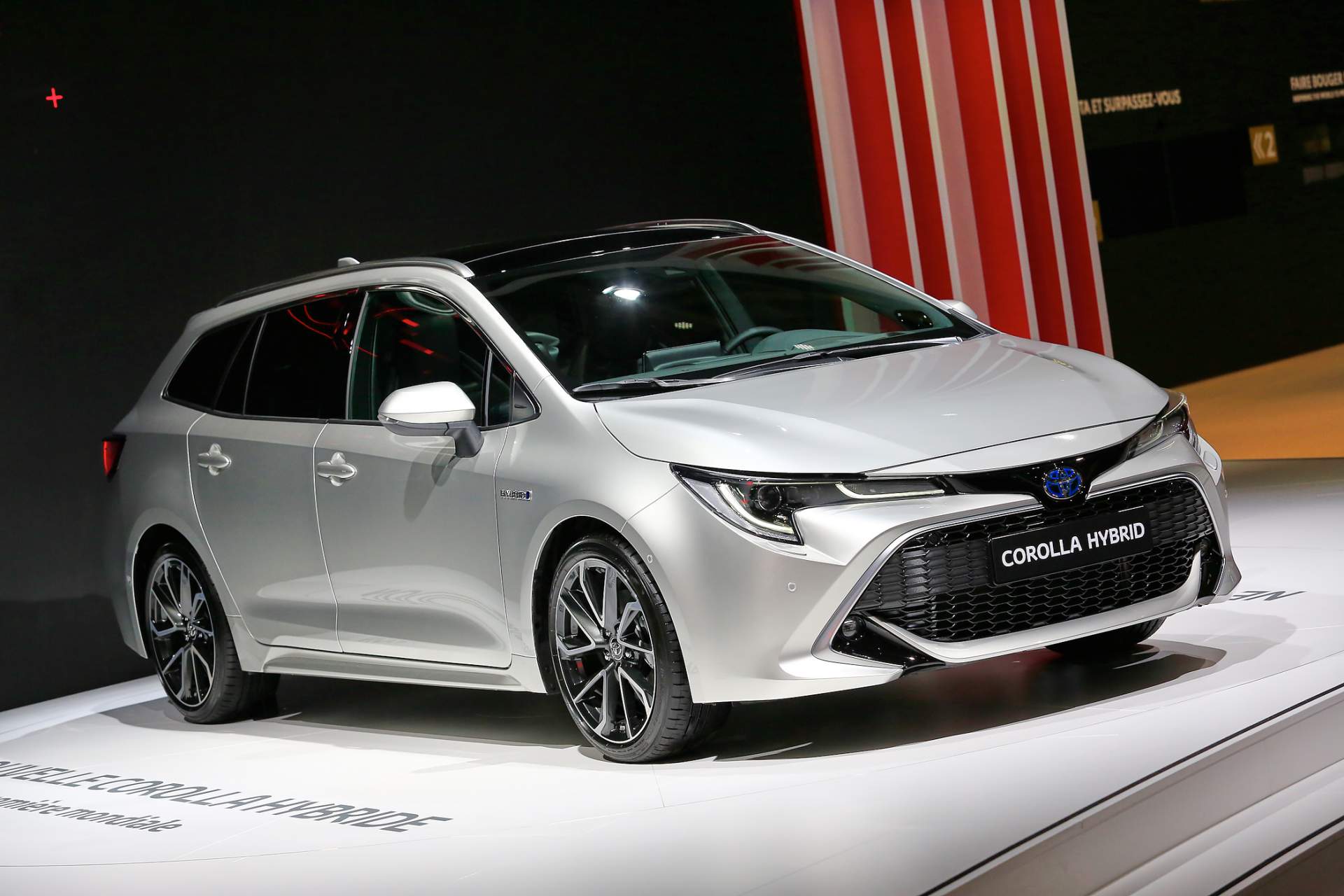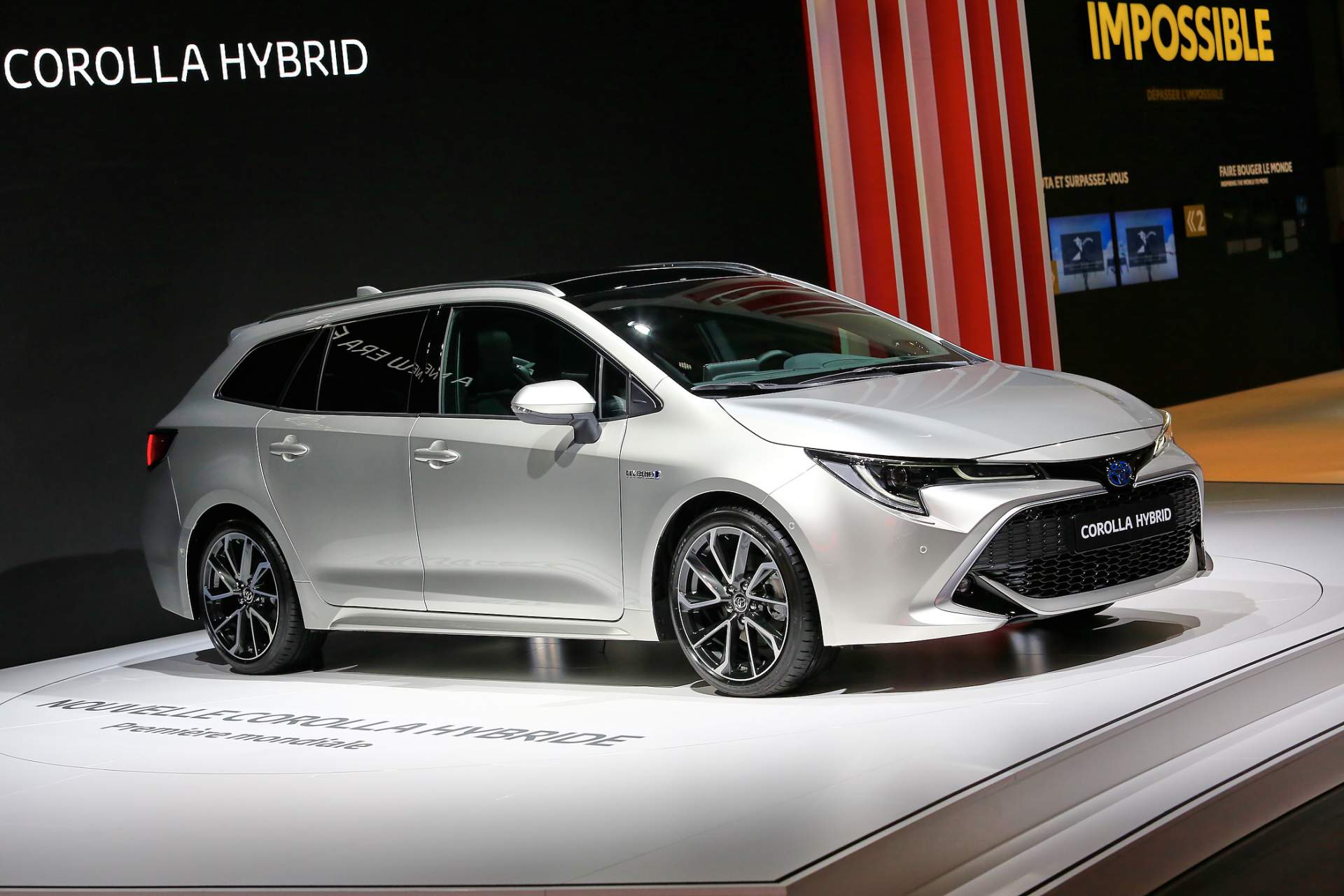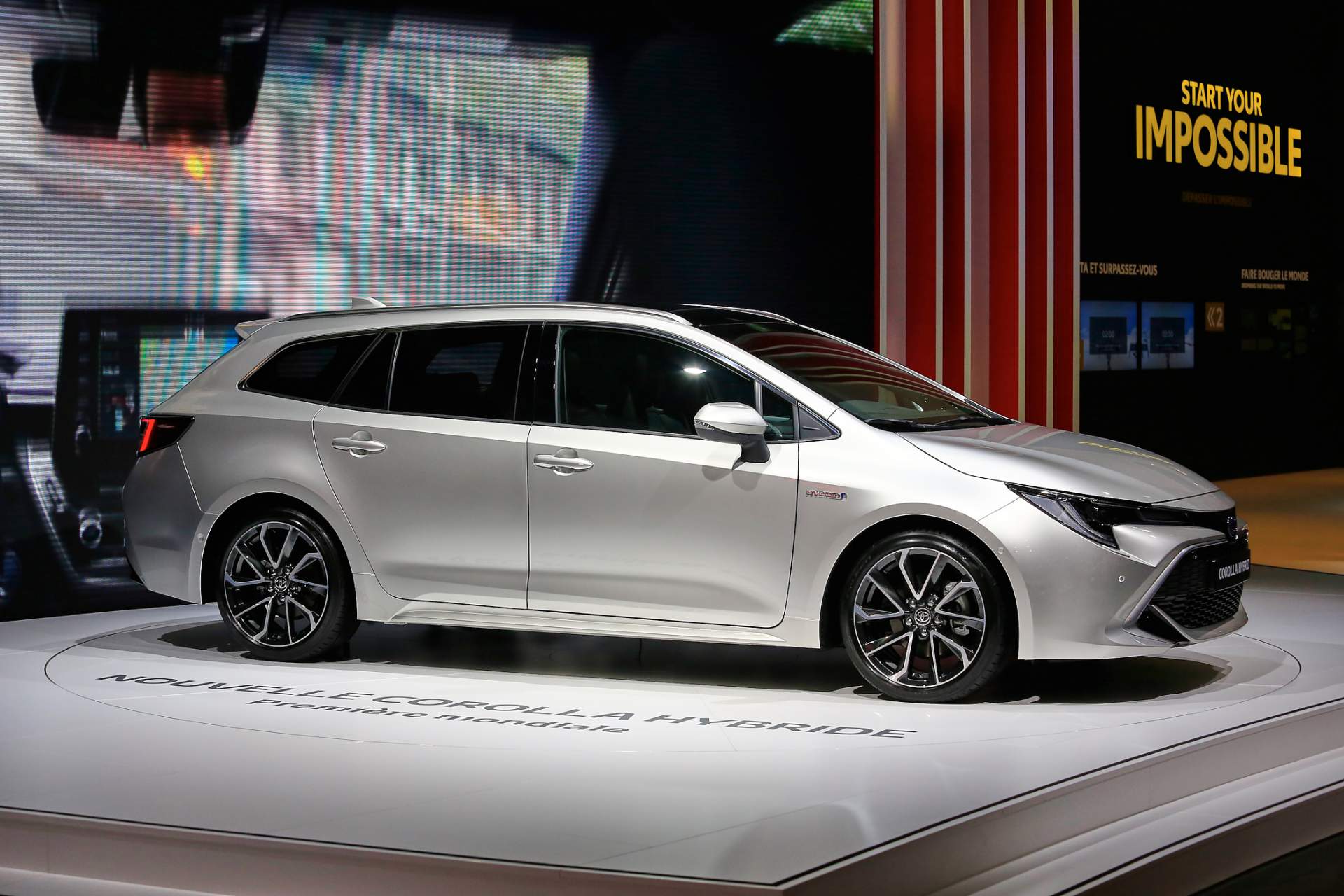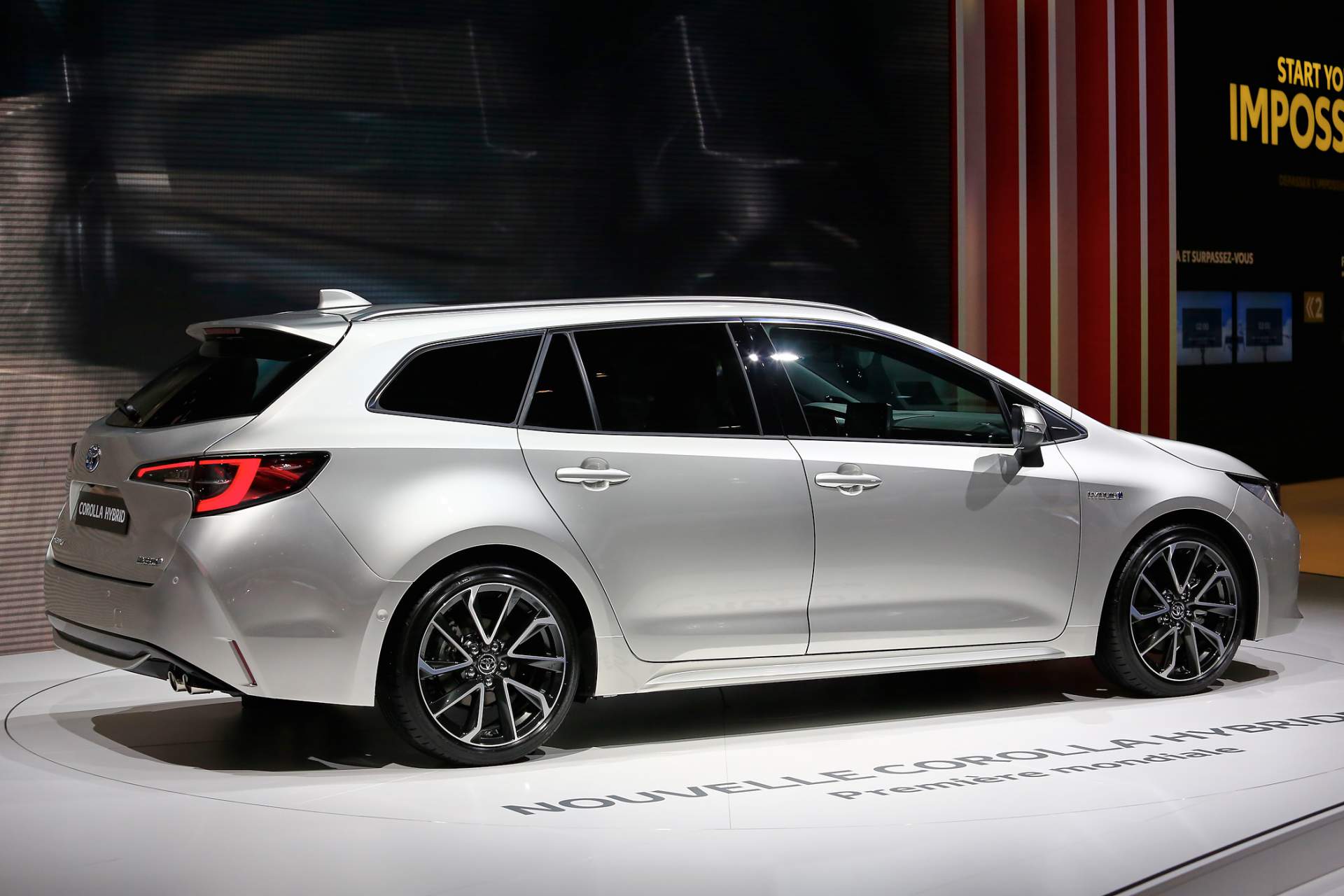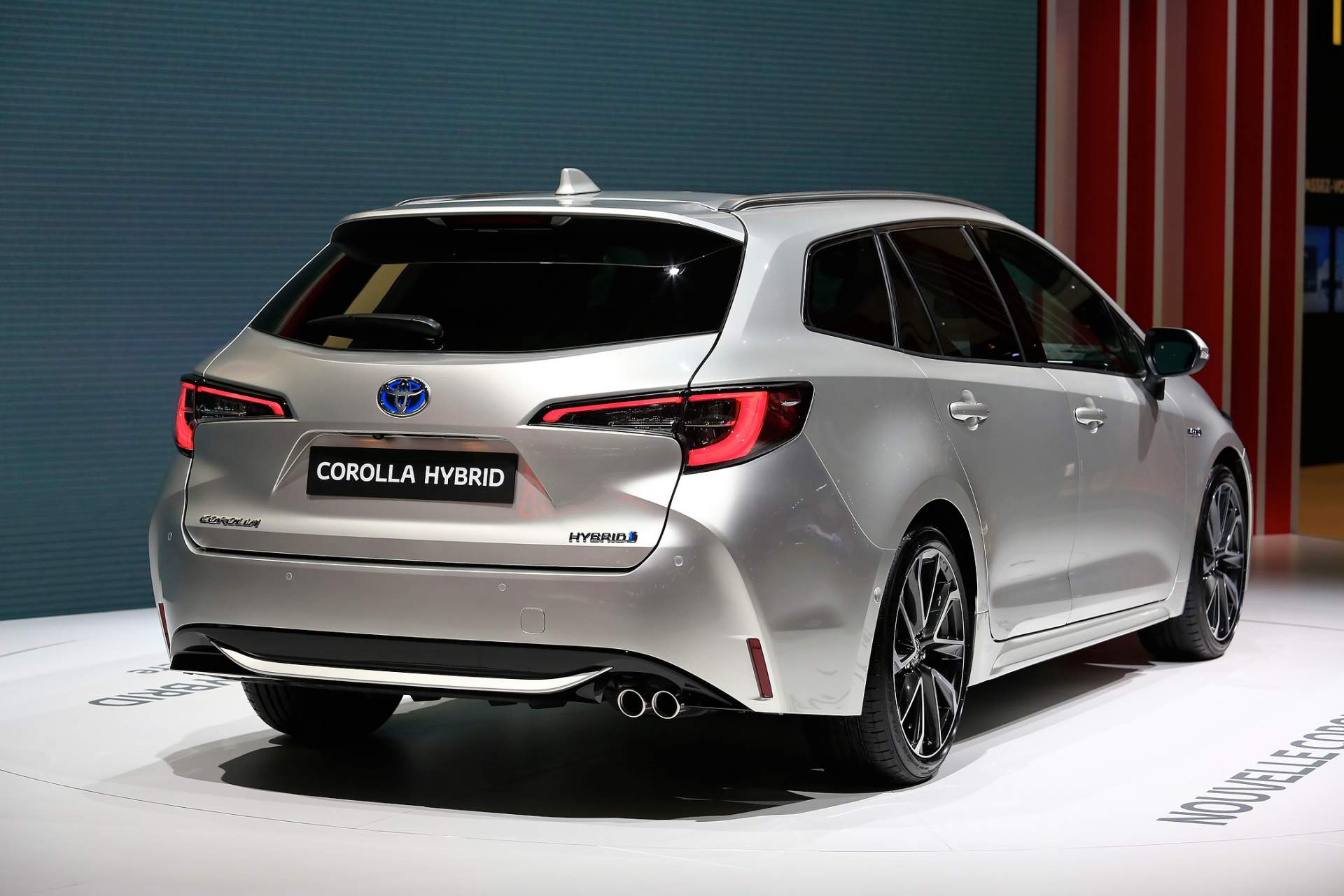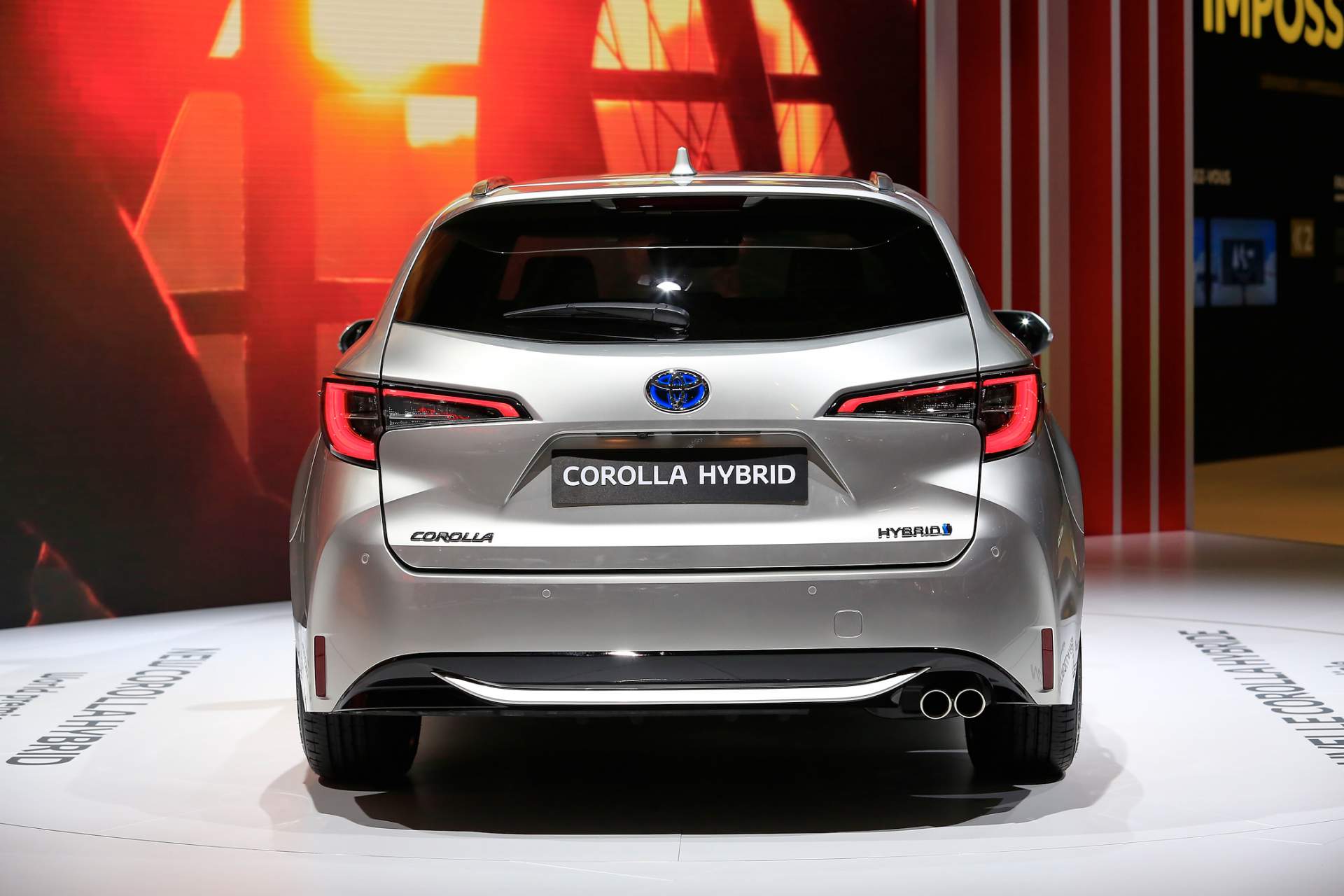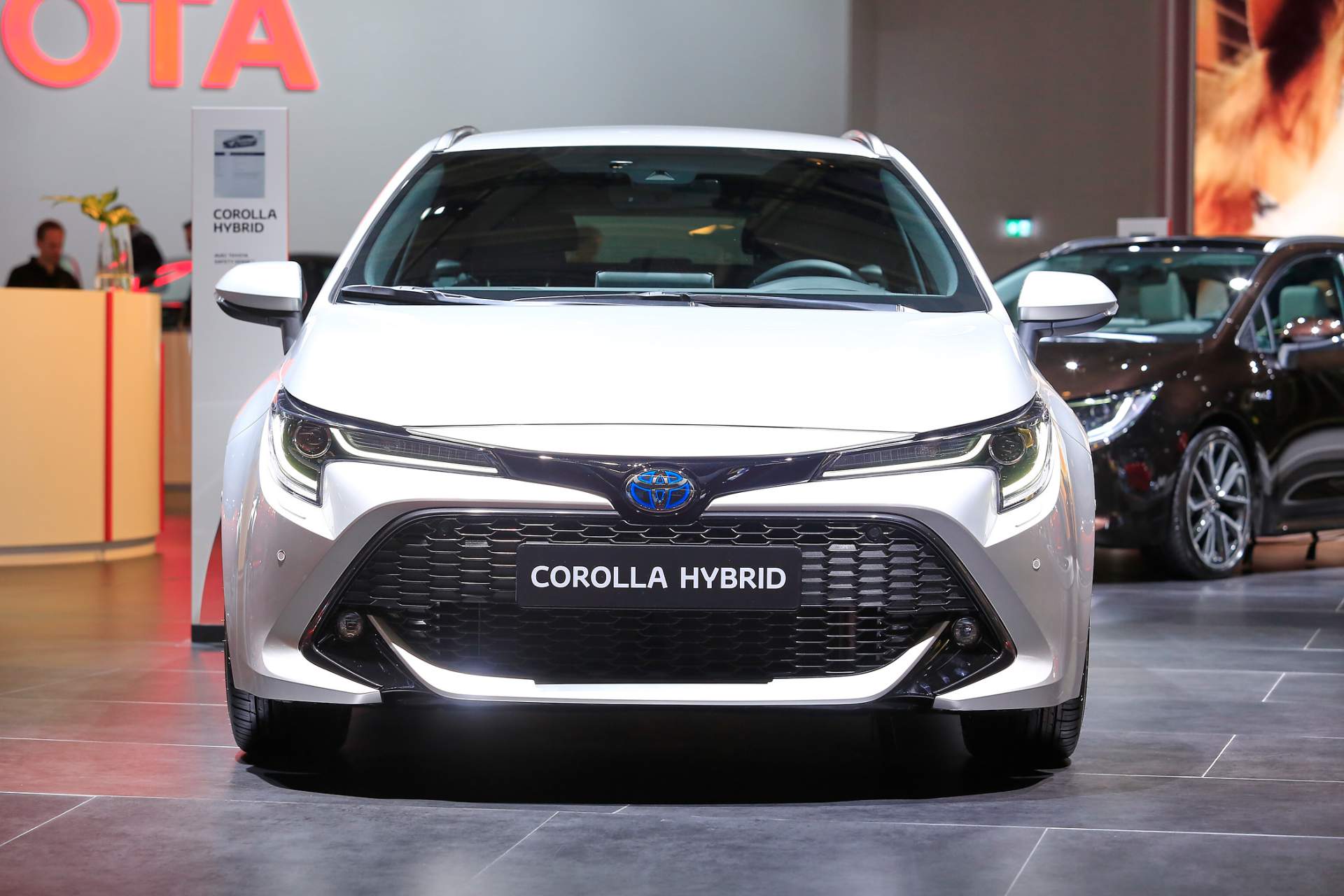The Auris is dead, long live the Corolla! Toyota is revamping its iconic nameplate in Europe in two body styles, a five-door hatchback, and a wagon.
The new Corolla lineup also marks the debut of Toyota’s dual hybrid strategy, with both the hatch and the wagon offering a choice of two hybrid powertrains. In addition to those, the new compact models from Toyota will be available with just one conventional engine, a 116 PS (114 hp) 1.2-liter turbo petrol unit.
The self-charging hybrid powertrains are a 122PS (120hp) 1.8-liter and a 180PS (178hp) 2.0-liter. The former places emphasis on fuel economy, with Toyota claiming “outstanding fuel economy and low CO2 emissions,” as well as up to 50 percent all-electric driving on the everyday commute.
The 1.8-liter gasoline engine delivers 122 PS (120 hp) and 142 Nm (105 lb-ft) of torque, with an electric motor adding 53 kW (72 PS/71 hp) and 163 Nm (120 lb-ft). The 2.0-liter hybrid system offers 180 PS (177 hp) and 192 Nm (142 lb-ft) of torque and is assisted by a nickel-metal hydride-powered electric motor.
The 2.0-liter system targets buyers who want a more spirited drive, offering more power and even steering wheel-mounted paddles for a more engaging driving experience.
Both Corollas are based on Toyota’s TNGA GA-C platform which is said to offer a more rewarding driving experience thanks to a 10-mm (0.39-in) lower center of gravity, standard multi-link rear suspension, and 60-percent more rigid body shell. As a result, the Corolla is said to offer better handling and stability without compromising ride and comfort.
Practicality-wise, the Corolla Touring Sports benefits from a 58-mm (2.3-in) longer body than the model it replaces. More importantly, the wheelbase is 100-mm (3.93-in) longer for a total of 2,700 mm (106.3 in), which helps the wagon provide “best-in-class rear seat passenger legroom,” according to the automaker. Cargo volume capacity is 598 liters (21.1 cu ft) loaded up to the parcel shelf with all seats in place.



